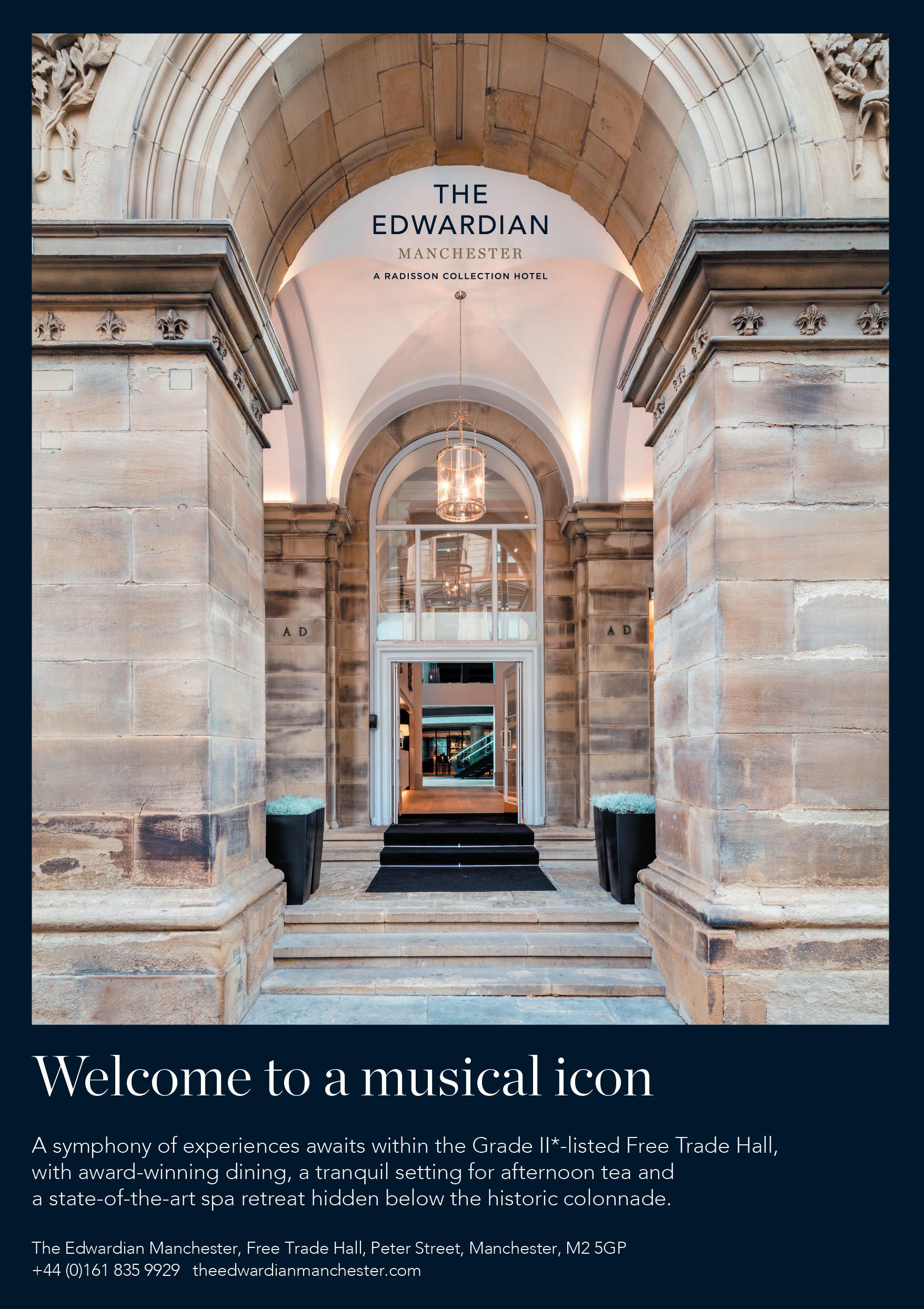










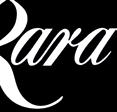













Welcome to tonight’s performance of the 1857 version of Verdi’s Simon Boccanegra. One of Verdi’s greatest operas, tonight we offer you the rare opportunity to hear this remarkable score in its original version in a new critical edition taken from Verdi’s original manuscript. For both opera lovers and novices alike, you will experience a compelling drama that shines new light on one of opera’s greatest composers.
For over ten years Opera Rara and the Hallé have enjoyed a productive partnership, a relationship that began in 2012 with Donizetti’s Rita. Since then, we have recorded five award-winning projects, showcasing many rare and forgotten operatic works. Partnership is core to Opera Rara’s work, and this, our latest studio recording, will leave an artistic legacy for current and future audiences to enjoy.
We welcome an international cast of soloists, many making their Opera Rara debuts and some enjoying a long-standing relationship with the company. In the title role, Germán Enrique Alcántara makes his Opera Rara debut as well as Eri Nakamura and William Thomas, who both have had fruitful relationships with the Hallé. Iván Ayón-Rivas returns to Opera Rara after his International Opera Award-winning performance in Mercadante’s Il proscritto. Sergio Vitale, David Shipley and Beth Moxon complete the cast. In welcome new partnerships, the Hallé are also joined this evening by the Chorus of Opera North and students from the Royal Northern College of Music.
It is a pleasure for Opera Rara and the Hallé to be working together again and to welcome you to an evening of operatic discovery.
 David Butcher
David Butcher
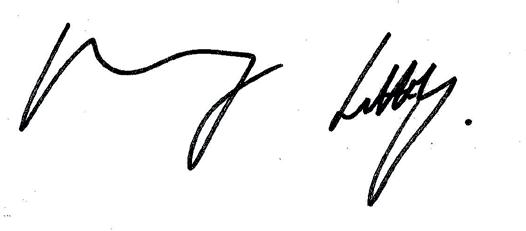 Henry Little Chief Executive, Hallé Chief Executive, Opera Rara
Henry Little Chief Executive, Hallé Chief Executive, Opera Rara
thursday 18 april, 7pm at the bridgeWater hall, manchester
6PM IN THE AUDITORIUM
Sir Mark Elder introduces this evening’s concert.
HALLÉ THURSDAY SERIES SPONSORED BY
It is due to the generosity of our sponsors, patrons and every loyal supporter that we are able to perform these concerts. Arts Council England, the Greater Manchester Combined Authority and Manchester City Council have our sincerest thanks for their ongoing support.
The Hallé is deeply grateful to our partners in The Bridgewater Hall, without whose collaboration these concerts would not be possible.


Opera in a prologue and three acts
Libretto by Francesco Maria Piave, with additions by Giuseppe Montanelli after Antonio García Gutiérrez’s Simón Bocanegra
Premiere: 12 March 1857, Teatro La Fenice, Venice
Critical Edition by Roger Parker (2022) © Casa Ricordi Srl., Milano (Universal Music Publishing Group, Classics & Screen)
By arrangement with G. Ricordi & Co. (London) Ltd.
Cast List
SIMON BOCCANEGRA a corsair, later Doge of Genoa Germán Enrique Alcántara
GABRIELE ADORNO a Genoese gentleman Iván Ayón-Rivas
JACOPO FIESCO a Genoese nobleman, later known as Andrea William Thomas
AMELIA GRIMALDI his adopted daughter Eri Nakamura
PAOLO ALBIANI a goldsmith, later the Doge’s favourite courtier Sergio Vitale
PIETRO a Genoese popular leader, later a courtier David Shipley
AMELIA’S MAID Beth Moxon
Chorus of Opera North anthony kraus chorus master
RNCM Opera Chorus kevin thraves chorus master
The Hallé
Sir Mark Elder conductor
Martin Fitzpatrick assistant conductor
Matteo Dalle Fratte italian language coach
Nicholas Ansdell-Evans repetiteur (principals)
Anthony Kraus chorus director
Howard Croft chorus manager
Surtitles prepared by Kenneth Chalmers and operated by Louise Brimicombe.
With thanks to the Hampstead Parish Church and the Fidelio Cafe (London).
Let us try a counterfactual thought-experiment. What would we now think of Verdi’s original
Simon Boccanegra, first performed in Venice at the Teatro La Fenice in 1857, had Verdi elected not to revise the opera more than 20 years later? The original version emerged as the centrepiece of a trio of extraordinarily diverse works from the later 1850s. First came Les Vêpres siciliennes (‘The Sicilian Vespers’, 1855), written for Paris as an explicit attempt to emulate and surpass the brand of grand opera made famous by Meyerbeer. Then came Boccanegra, which returns to the Italian tradition but has few obvious models in Verdi or anyone else, being best described as an austere attempt to create a lean, Italianate avant-garde. And lastly came Un ballo in maschera (‘A Masked Ball’, 1859), which mostly forsakes Boccanegra’s radical new Italian style and also features a return to French models, this time to the language of opéra comique rather than that of Meyerbeerian grand opera. Of these three works, only Un ballo in maschera was at all longlasting in the then-emerging international repertoire. Boccanegra in particular soon dropped out of sight and, but for Verdi’s 1881 revision (the version in which it is usually heard today), would surely have remained unperformed for many decades.
However, and just as surely, Boccanegra in its original 1857 form would then have been revived – as were so many of Verdi’s forgotten operas – in the 20th century, its dark intensity doubtless finding many resonances in that century’s changing times. But that rehabilitation was not to be: the presence of Verdi’s 1881 revision has effectively prevented it from taking place. So overwhelming has been our belief in the idea of progress in 19th-century Italian opera – in the idea that, especially in Verdi’s hands, the genre matured dramatically, became more serious and worthy of respect as the century rolled on – that the original Boccanegra has almost entirely been ignored in favour of its later, more modern cousin. There have been occasional revivals, but they have never quite managed to escape the shadow of the composer’s later thoughts. After all, or so the story goes, Verdi revised the score because he was dissatisfied with the original; what business do we have to question such an august and authoritative decision?
Even a brief glance at the context of the revision, indeed of Verdi’s revisions in general, will suggest that matters are not quite so simple. For one thing, all Verdi’s major revisions of Italianlanguage operas (of Macbeth, Stiffelio and Simon Boccanegra) were instigated primarily for practical reasons. Each of the operas in question had fallen out of the repertory, and Verdi, encouraged by his publisher Ricordi, used revision as a chance to update them, making sometimes radical adjustments to their musical language in order to re-present them to a public with inevitably changed expectations. Such a stance is understandable from his point of view. He was working in a world in which the idea of ‘repertory opera’ was in its infancy, in which new works were still the most prestigious element of the operatic scene. In such a cultural atmosphere, to be judged outmoded was still (often) to be judged unsuccessful. What more likely, then, that Verdi’s mission in revisions was to bring the most backward-looking aspects of a piece violently up to date? It is above all for this reason that he seemed, when making revisions, to care very little about stylistic disparity, remaining largely indifferent to the fact that his revisions often created strange anachronistic dissonances. There are famous examples from several parts of his career, one of the most obvious being Lady Macbeth’s aria ‘La luce langue’, added for the Paris revision of Macbeth in 1865, almost 20 years after the work’s premiere in Florence. ‘La luce’ makes no attempt to adapt to the late 1840s musical atmosphere of the surrounding material; it is, rather,
one of the most radical pieces – orchestrally, harmonically – that Verdi had written even by the mid 1860s.
The same is true of the 1881 Boccanegra revisions, in which virtually all the new additions look forward stylistically to the last operas, Otello and Falstaff, rather than backward to the world of the then-distant 1850s. There are examples of this in virtually every number of the opera, particularly in the Prologue and Act One. Into the spare, lean orchestration and stark vocal declamation of the 1857 version, a world that often recalls Il trovatore at its most austere, Verdi in 1881 introduced passages of startling instrumental colours and fleeting lyrical outbursts, very much in the vein that would, with Otello some years later, become the hallmark of his late style. The largest single difference between the two Boccanegras, their Act One Finales, is the classic illustration. From the perspective of the early 1880s, Verdi stated in letters that his 1857 Finale needed ‘relief, variety and greater life’; and he replaced it with the famous Council Chamber scene, with its passionate exhortations to Italian unity. True, his 1881 Finale is
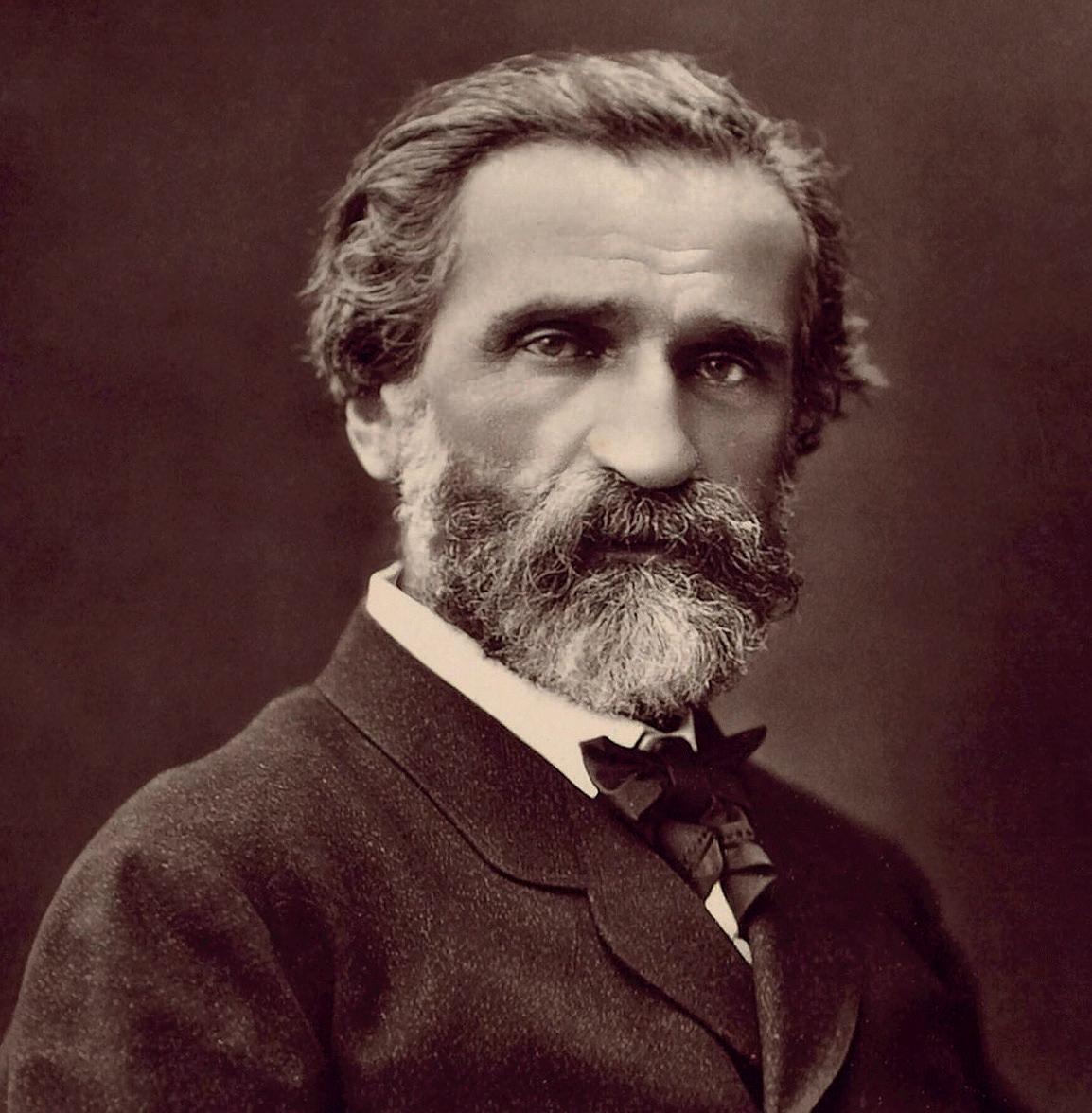
magnificent. But it’s worth recalling that, as well as its consistently ‘late style’ musical language, it tellingly addresses itself to acutely contemporary issues, in particular to the fractious politics and extravagant ambitions of the newly-formed Italian state. In musical style and political resonance, it is, in other words, very much of its time. In this context, we might see the 1857 Finale as having a very different mood: rather than being an inferior first draft, it is a highly original attempt to re-imagine the central Italian finale of the early 1850s, one in which variety of utterance has comparatively little place, and in which the economy of writing and darkness of tone are at an extreme. And again this mood might be thought suited to the times; in this case to the dark, counter-revolutionary atmosphere of the late 1850s, in which hope of a new Italy was at something of a low ebb. It is, in other words, easy to see why Verdi – who, as he grew older and more famous, became increasingly aware of the political resonances of his operas – felt he needed to make such a radical substitution in 1881. But from our standpoint, a century and half later, with both moods now mere historical traces, an automatic preference for one version over the other is made only by dint of ignoring both the musical and historical journey on which Verdi was travelling.
Such arguments could be made for the other major differences between the two versions of Boccanegra, in which the 1857 version constantly tends towards starker colours, greater economy of utterance and, above all, greater single-mindedness. To press the case: is Verdi 20 years on always, necessarily, better? Is Aida better than Il trovatore? Is Otello better than Don Carlos? Unless we continue passively to support that old idea about the gradual maturing of Italian opera, there can be no unequivocal answers. Most lovers of the composer would surely want to argue that such questions of value will at the least be heavily inflected by the quality of the performance; and, perhaps just as much, by the nature of the audience – by who they are, where they are, and the mood (political or more broadly cultural) that surrounds them. Particularly when it is performed with commitment and an awareness of its stylistic peculiarities, hearing the original Boccanegra can, in short, lead us to confront important questions, ones that might even extend to the whole issue of whether Verdi’s revisions are, as well as re-imaginings, invariably improvements. True, he thought of them as just that. But times change, and with them change the meanings that we can extract from works of art. The ‘old’ Boccanegra might, in this context, quite suddenly become fresh and ‘new’, adapted to our times just as urgently as was its successor.
This is not the place for a detailed account of the genesis of Simon Boccanegra. Briefly told, though, Verdi decided to write an opera for the Carnival season of 1856–7, but was reluctant to commit to a theatre or a specific topic, in all likelihood because he was still considering the possibility of creating a version of King Lear. Eventually, though, he decided to return to the author who had inspired Il trovatore, the Spanish playwright Antonio García Gutiérrez, and set to music his drama Simón Bocanegra of 1843. His librettist was, as usual, the long-suffering Francesco Maria Piave (librettist of Macbeth, Rigoletto, La traviata and half a dozen other Verdi operas), albeit with some late assistance from Giuseppe Montanelli, a Tuscan poet and political exile. The first performance took place at Venice’s Teatro La Fenice on 12 March 1857, with a cast including Leone Giraldoni (Boccanegra), Giuseppe Echeverria (Fiesco), Luigia Bendazzi (Amelia) and Carlo Negrini (Gabriele). It was, famously, not a success. Verdi immediately reported to
several correspondents in more or less the same terms. One letter, to the impresario Vincenzo Torelli in Naples, has more than a hint of theatrical flourish:
The Venice carnival has been fine: the theatrical season good up to now, but yesterday evening the trouble started: there was the first performance of Boccanegra, and it was a fiasco almost as big as that of La traviata. I thought I’d done something passable, but it seems I was mistaken.
As usual, the newspaper and magazine reviews showed a very wide variety of opinions. What is in little doubt, though, is that the principal singers were applauded and that the audience’s tepid reaction was brought on, above all, by the generally dark colours of the drama and by its unconventional vocal manners, with much of the score rejecting bel canto traditions and instead exploiting a declamato delivery, not least in the writing for the opera’s protagonist.
Perhaps in part because of this indifferent reception, Verdi personally supervised an early revival of the opera at the inauguration of Reggio Emilia’s Teatro Municipale on 10 June 1857, only three months after the Venice premiere. He took the trouble to attend rehearsals, spending the best part of a month in situ, in the process making some changes to his score, both musical and scenic. A number of further revivals took place up until the early 1870s, perhaps some 40 in all. Although there were occasional successes, not least in Reggio Emilia, in many prominent places (notably at La Scala, Milan, in January 1859) the reception was lukewarm at best. In the wake of the La Scala debacle, Verdi offered his publisher, Tito Ricordi, a characteristic mix of defiance and pessimism:
Regardless of what friends and enemies say, Boccanegra isn’t inferior to many of my other operas that have been more fortunate, and this is because the work perhaps needs a more refined performance, and a public that wants to listen; what a sad thing the theatre is!
But ‘the public’ remained unable, or at least unwilling, to appreciate the opera’s unusual qualities; in general, Boccanegra became known as a ‘problem’ piece and was avoided in the most prestigious theatres. Quite soon revivals were mostly restricted to minor venues, and even these had dried up completely by the early 1870s. By that time the Ricordi firm, anxious to promote the opera further, was hatching plans for a more thorough-going revision, one that would eventually see the light in 1881.
Our edition of the 1857 Simon Boccanegra, commissioned from the present writer by Ricordi (still in existence and still championing the composer’s operas), is the first to be based on Verdi’s autograph score of this version, which only became available to scholars a few years ago. All previous versions have had to rely on the near-contemporary Ricordi vocal score and on various manuscript copies. These sources are, for the most part, reliable in reporting the notes Verdi wrote; but in terms of dynamics, phrasing and other aspects of articulation even the best of them is approximate and frequently lacking in essential detail. The autograph materials thus provide a rich new resource, offering contemporary performers the chance to contemplate for the first time many of Verdi’s richly detailed musical instructions.
The scene is set in Genoa in the first half of the 14th century. Simon Boccanegra, a corsair, is in love with Maria, the daughter of the patrician Jacopo Fiesco. They have had a daughter together, but Fiesco has imprisoned Maria in his house, while the young child has been entrusted to an old woman outside the city.
N. 1 Preludio
N. 2 Prologo
A square in Genoa. In the background, the church of San Lorenzo lit from within. On the right, the house of the Fieschi, with a large door and large balcony. In a niche in the wall beside the balcony is an image of the Virgin, in front of which burns a lamp. Night is falling.
Paolo, a goldsmith, and Pietro, a leader of the plebeian party, are discussing the imminent election of a new Doge. Paolo suggests Boccanegra as a possible candidate and promises Pietro power and riches, if he will use his influence on Boccanegra’s behalf. Pietro agrees and departs; left alone, Paolo expresses his hate for the patrician class. Boccanegra appears and Paolo persuades him to stand for office: if he becomes Doge, Fiesco will surely feel compelled to give him his beloved Maria in marriage. A crowd of sailors and workmen is heard approaching, Pietro at their head; Paolo tells Boccanegra to hide. Paolo incites the crowd to support Boccanegra, vividly evoking Fiesco’s cruelty in imprisoning his daughter.
As the crowd disperses, Fiesco comes out of his house and in an impassioned lament reveals that Maria has died unexpectedly. Boccanegra emerges from his hiding place and is angrily confronted by Fiesco: not revealing his daughter’s death, Fiesco says that only if Maria’s child is handed over to him will he be appeased. But Boccanegra reveals that the girl has mysteriously disappeared from her residence outside Genoa. Fiesco enters the church and Boccanegra, seeing that Fiesco’s house has been left open, enters in search of Maria. He discovers her body just as crowds appear proclaiming him Doge.
N. 3 Scena e Cavatina Amelia
The Grimaldi house, outside Genoa. A hall with a door at the back and a large balcony, beyond which is seen the countryside and the gulf of Genoa. Some time after the curtain rises, dawn breaks. Twenty-five years have passed. Fiesco, now in exile and living under the name Andrea, is living in the Grimaldi residence and is plotting to overthrow Doge Boccanegra. Amelia, a woman in her late 20s, was an orphan discovered by the Grimaldi family and adopted by them; Andrea has become like a father to her. As the curtain rises, she is awaiting her lover Gabriele Adorno, whose voice she hears in the distance.
N. 4 Duetto Amelia e Gabriele
Gabriele enters. Amelia suspects that he is plotting with Andrea to overthrow the Doge and fears for his safety. Pietro enters to announce the imminent arrival of the Doge. When he leaves, Amelia tells Gabriele that she fears the Doge wishes to marry her off to his favourite, Paolo; she begs him summon Andrea, who will permit their immediate marriage.
N. 5 Scena e Duetto Gabriele e Fiesco
Gabriele meets Andrea and asks for Amelia’s hand. Andrea tells him that she is an orphan, adopted by the Grimaldi family to help them protect their wealth from the Doge. Gabriele is undeterred, and the two men swear revenge on their ruler.
N. 6 Scene e Duetto Doge ed Amelia
Boccanegra arrives and greets Amelia with a letter of pardon for her adopted brothers, whom he had earlier exiled. When he broaches the subject of her future marriage, she tells him she hates Paolo, who only wants the Grimaldi wealth; she loves, and is loved by, a man whose motives are pure. Questioned by Boccanegra, she narrates her early life as an orphan, adding that she had been given a picture of her absent mother, which she still wears in a locket. Boccanegra, guessing the truth, presents her with his own locket of his beloved Maria and the two joyously realise they are father and daughter.
Paolo enters and Boccanegra brusquely tells him to give up any idea of marrying Amelia. As the Doge leaves, Pietro appears and Paolo tells him that he has resolved to abduct his promised bride.
N. 7 Finale Primo
A large square in Genoa. A view of the port with ships. In the distance, on the right, castles and large houses. To right and left, magnificent buildings supported by a row of arches, with decorated balconies.
The anniversary of Boccanegra’s coronation is being celebrated. The festivities are interrupted by Andrea and Gabriele, who accuse Boccanegra of abducting Amelia. But then Amelia herself appears, proclaiming the Doge’s innocence, describing how she escaped her captors and saying she will reveal the identity of her abductor only to the Doge. All join in calling for justice to be brought down on the guilty one.
N. 8 Scena e Duetto Paolo e Fiesco
A richly appointed room in the ducal palace in Genoa.
Paolo tells Pietro to bring forward Andrea and Gabriele, whom he has arrested. He then rails against Boccanegra: the Doge, learning from Amelia of his treachery, has pronounced that Paolo must go into exile within the next three days. When the prisoners arrive, Paolo urges Andrea, who he knows is really Fiesco, to kill Boccanegra, but the old man proudly refuses such underhand means.
N. 9 Scena ed Aria Gabriele
Paolo and Gabriele are left alone. Paolo insinuates that Amelia has been brought to the palace to serve as Boccanegra’s mistress. Gabriele explodes in anger and vows to kill the Doge.
N. 10 Scena e Duetto Gabriele ed Amelia
Amelia appears and Gabriele accuses her of being unfaithful. She denies this, but will not reveal her true relationship with Boccanegra. The Doge is announced. Amelia makes Gabriele hide on the balcony; he continues to call down death on his enemy.
N. 11 Scena e Terzetto
Boccanegra appears and Amelia admits to him her love for Gabriele. The Doge agrees to pardon him, if he repents. Amelia departs and Boccanegra, exhausted, falls asleep. Gabriele emerges from his hiding place and draws a dagger to stab the Doge, but Amelia reappears to stop his hand. Boccanegra wakes up and reveals to Gabriele that Amelia is his daughter. Gabriele immediately begs forgiveness from them both. Voices are heard outside: plotters are attacking the ducal palace. Gabriele pledges to defend Boccanegra, who promises him Amelia’s hand.
N. 12 Atto Terzo
The scene is as in Act Two. The awnings are pulled down over the balcony at the back. An oil-lamp burns on the table.
The populace celebrates the victory of the Doge over the rebels. A wedding chorus is heard. Paolo reveals to Fiesco that he has poisoned Boccanegra; the old man is disgusted at such an ignoble act. The Doge appears, visibly weakened, and Fiesco comes forward, disclosing his true identity and telling Boccanegra of his fate. Boccanegra reveals that Amelia is his daughter, and thus Fiesco’s grand-daughter; the two men are finally reconciled. Gabriele and Amelia arrive from their wedding; in his last moments, Boccanegra blesses the couple and names Gabriele his successor.
Programme note & synopsis © Roger Parker
Roger Parker is Emeritus Professor of Music at King’s College London. A specialist in 19th-century Italian opera, he is joint editor of Ricordi’s new critical edition of the works of Donizetti and Repertory Consultant to the Opera Rara record label. A past recipient of the Premio Giuseppe Verdi, he reviews for ‘Opera’ magazine, has written numerous programme notes for all the UK’s major opera companies and broadcasts regularly on BBC Radio 3.

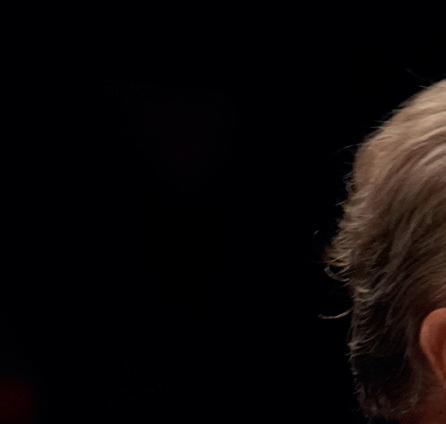
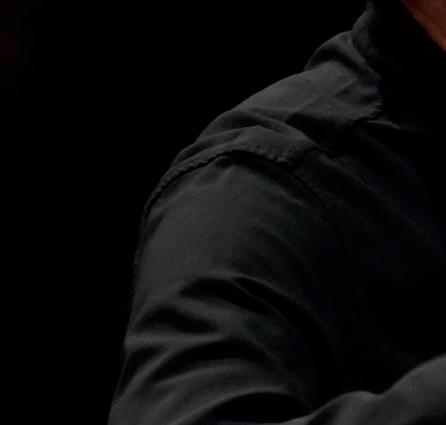
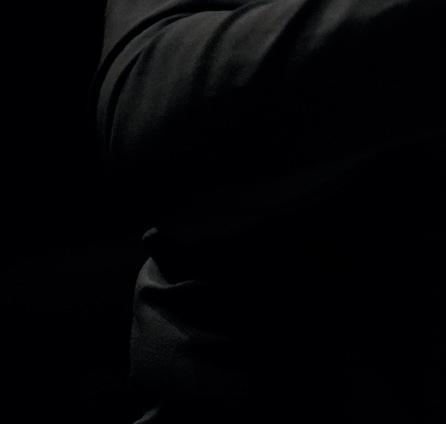
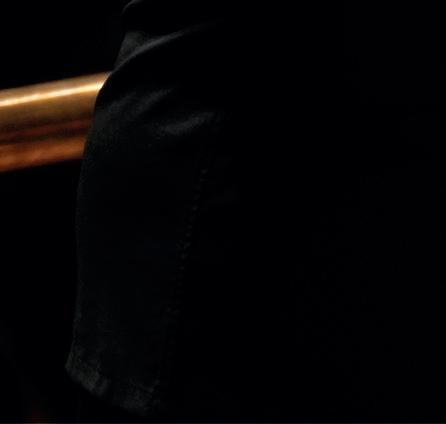

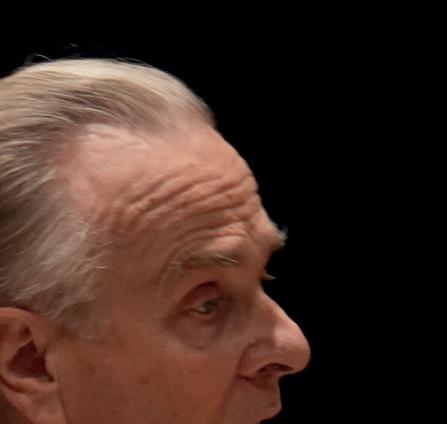
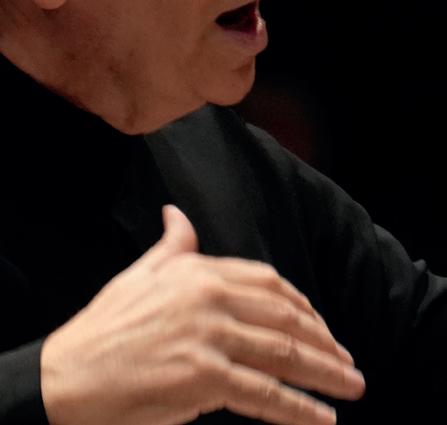

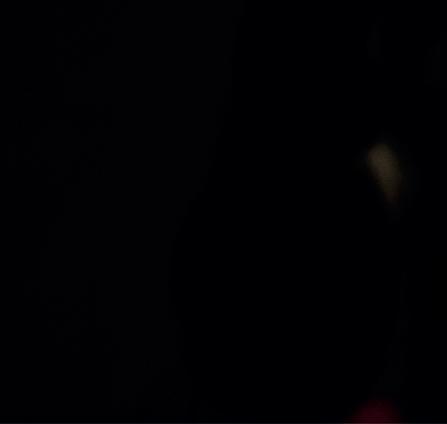


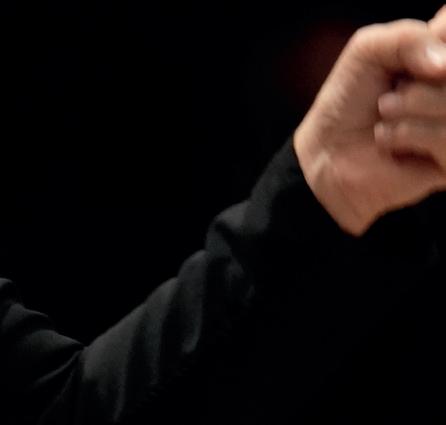
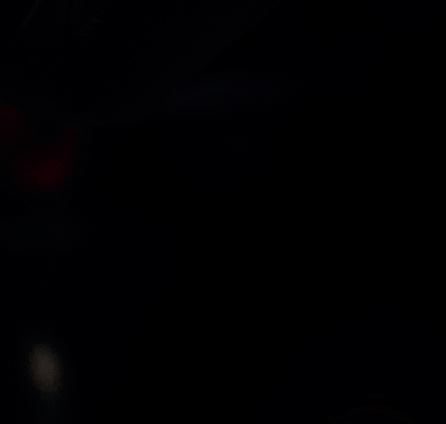


This season is Sir Mark Elder’s last as Music Director of the Hallé, a role he has held since September 2000. He became Principal Guest Conductor of the Bergen Philharmonic Orchestra in September 2022 and was previously Music Director of English National Opera (1979–93), Principal Guest Conductor of the BBC Symphony Orchestra (1982–5) and of the City of Birmingham Symphony Orchestra (1992–5), and Music Director of the Rochester Philharmonic Orchestra in the USA (1989–94).
A Principal Artist of the Orchestra of the Age of Enlightenment, he has worked with many of the world’s leading orchestras, including the Boston, Chicago and London Symphony Orchestras, Berlin and London Philharmonic Orchestras, Orchestre de Paris, Amsterdam Royal Concertgebouw and Budapest Festival Orchestra. He has appeared annually at the BBC Proms since 1975, including on the internationally televised Last Nights in 1987 and 2006, and with the Hallé every year since 2003.
He works regularly in the major international opera houses, including Covent Garden, the Met, Paris Opéra, Lyric Opera of Chicago and Glyndebourne, and was the first English conductor of a new production at Bayreuth. He has also guest-conducted in Amsterdam, Berlin, Geneva, Munich and Zurich, and at the Bregenz and Aix-en-Provence festivals.
His large discography ranges from Verdi, Wagner and Strauss to contemporary music. Among his many acclaimed releases on the Hallé’s own CD label are complete cycles of Wagner’s Ring and Vaughan Williams’s symphonies, as well as Gramophone Award-winning recordings of Elgar’s The Dream of Gerontius and Violin Concerto, while The Apostles was voted BBC Music Magazine’s Recording of the Year 2013. As Artistic Director of Opera Rara (2011–19), his many recordings included a multi-award-winning release of Donizetti’s Les Martyrs and an International Opera Award-winning set of Rossini’s Semiramide.
He has presented TV programmes on Verdi for the BBC and Donizetti for German TV, co-presented BBC Four’s four-part series Symphony, fronted BBC Two’s Maestro at the Opera and, in 2015, presented BBC Four’s Sunday evening series of symphony performances from the BBC Proms. Future concert engagements include the Boston, Chicago and Pittsburgh Symphony Orchestras and the Bergen and London Philharmonic Orchestras.
Recent and forthcoming operatic engagements include Carmen at the Paris Opéra, Benvenuto Cellini for Netherlands Opera, Die Meistersinger von Nürnberg for San Francisco Opera, Billy Budd, Falstaff and La traviata for Glyndebourne, and concert performances of Lohengrin with the Royal Concertgebouw Orchestra (recorded live for CD). He opened the 2018/19 Met season with a new production of Samson et Dalila, returned to Covent Garden for a new production of Peter Grimes in 2022 and a revival of Aida in 2023, and also conducted Meyerbeer’s Le Prophète with the LSO at the 2023 Aix-en-Provence Festival.
Sir Mark Elder was appointed a Companion of Honour in the 2017 Queen’s Birthday Honours, knighted in 2008 and awarded the CBE in 1989. He won an Olivier Award in 1991 for his work at ENO and in 2006 was named Conductor of the Year by the Royal Philharmonic Society, of which he was awarded Honorary Membership in 2011.
Argentine baritone Germán Enrique Alcántara is a graduate of the Royal Opera House’s Jette Parker Young Artists Programme and made his ROH debut in the 2018/19 season as Dancaïre/ Carmen, going on to appear in La traviata, Andrea Chénier and Faust (the latter also on tour to Japan) as well as, in 2021/22, singing Count Almaviva/Le nozze di Figaro under Sir Antonio Pappano. Amongst his many successes in international singing competitions are First Prize in the José Carreras Grand Prix in 2021, the Gold Medal at the Manhattan International Competition in 2020 and First Prize in the Concours Lyrique International ad Alta Voce in Paris in 2016. Previous roles include Marcello/La bohème at Welsh National Opera, the title role/Don Giovanni at New Israeli Opera, Belcore/L’elisir d’amore and Zurga/Les Pêcheurs de perles at Teatro Colón Buenos Aires. His concert repertory includes Mozart’s Requiem, Schubert’s Mass in G, Handel’s Messiah, Buxtehude’s Membra Jesu Nostri and Rossini’s Petite Messe Solennelle. He has recorded Misa Palatina with the Chamber Choir of the National University of Misiones. Recent and future highlights include Don Giovanni in San Diego and Tel Aviv, Prosdocimo/Il turco in Italia in Buenos Aires, Enrico/Lucia di Lammermoor in Berlin, Manfredo/Il giuramento in Dortmund and Belcore in Muscat, as well as Albert/Werther (in concert) in Dortmund and Angelotti/Tosca at the Royal Opera House.
Japanese soprano Eri Nakamura, who sang Cio-Cio San/Madama Butterfly with Sir Mark Elder and the Hallé in May 2022, was a Royal Opera House Jette Parker Young Artist when she first shot to prominence in 2009 after stepping in at short notice to replace Anna Netrebko as Giulietta/I Capuleti e i Montecchi, since when she has made notable debuts in Europe, Asia and North and South America. This season includes debuts with English National Opera in 7 Deaths of Maria Callas and with the Royal Swedish Opera as Cio-Cio San, a role she has also performed at the New National Theatre, Tokyo, and at Covent Garden, where other roles include Gilda/ Rigoletto, Liù/Turandot, Susanna/Le nozze di Figaro under Colin Davis and Sophie/Werther under Antonio Pappano (also recorded by DG). As a member of the Bayerische Staatsoper ensemble (2010–16) her roles included Adina/L’elisir d’amore, Gretel/Hänsel und Gretel, Pamina/Die Zauberflöte, Zerlina/Don Giovanni, Frasquita/Carmen and Woglinde/Götterdämmerung. Last season she sang Mimì/La bohème in Tokyo, also appearing in a Verdi gala with Scottish Opera, while recent highlights include her first Magda/La Rondine at Biwako Hall, Juliette/Roméo et Juliette in Santiago de Chile, Pamina for Washington National Opera, Beethoven’s Ninth Symphony with the Yomiuri Nippon SO and Tokyo Philharmonic Orchestra, Ravel’s Shéhérazade with the Estonian National and Tokyo Symphony Orchestras, Mahler’s Symphony No. 4 with the London Philharmonic Orchestra under Yannick Nézet-Séguin and Dvorˇák’s Stabat Mater with the Czech Philharmonic.
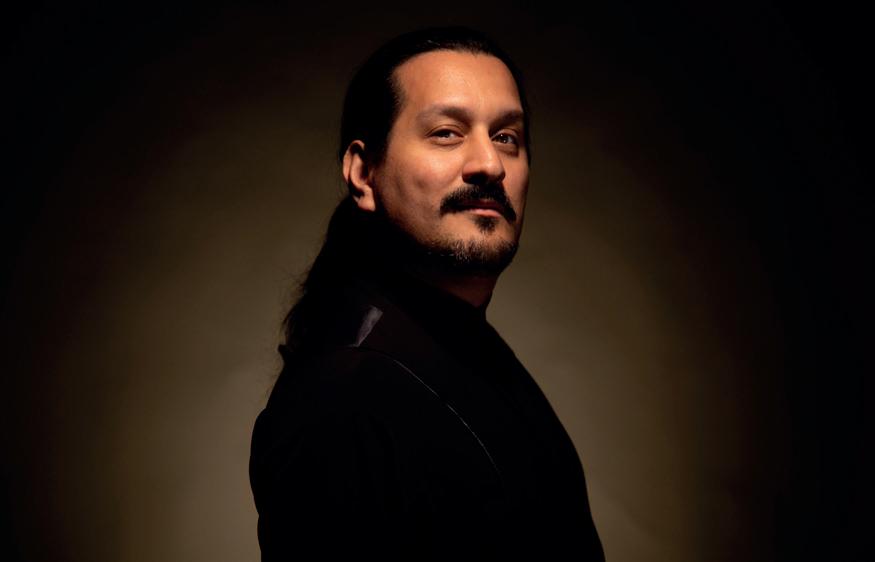
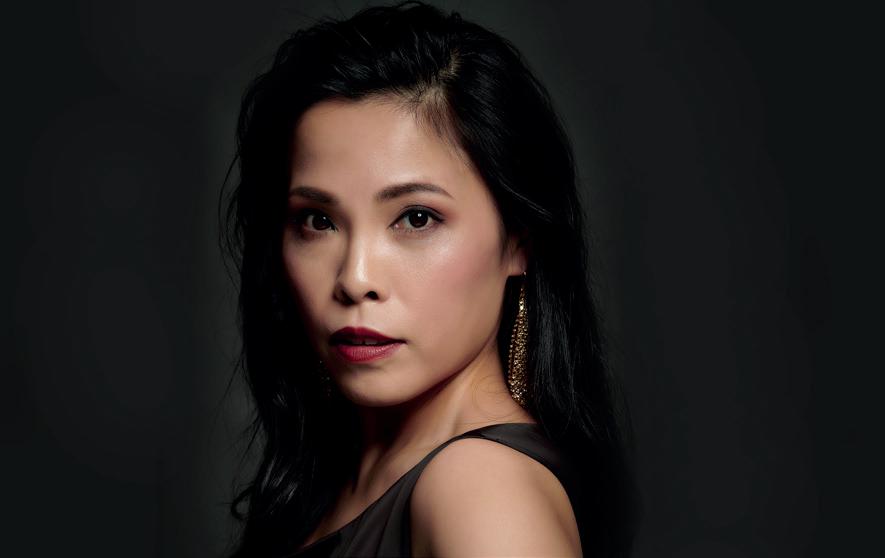
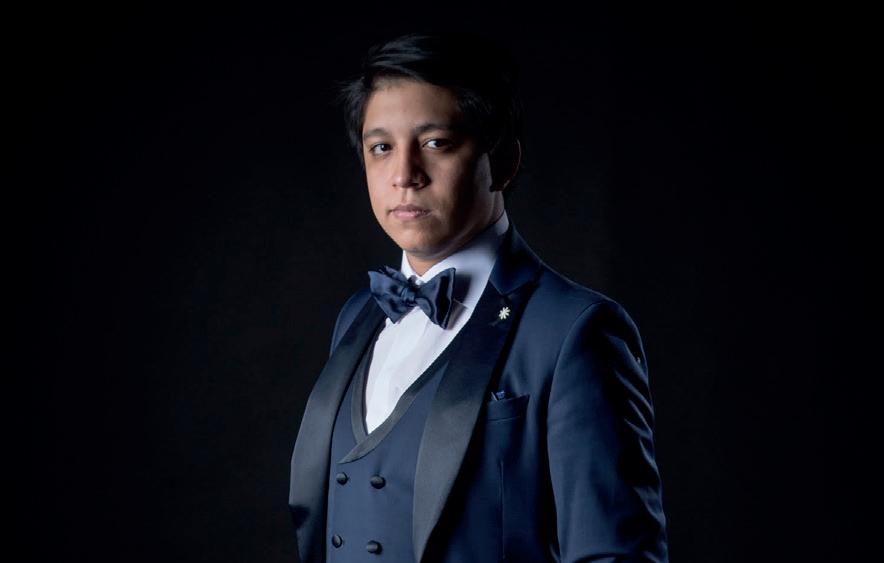
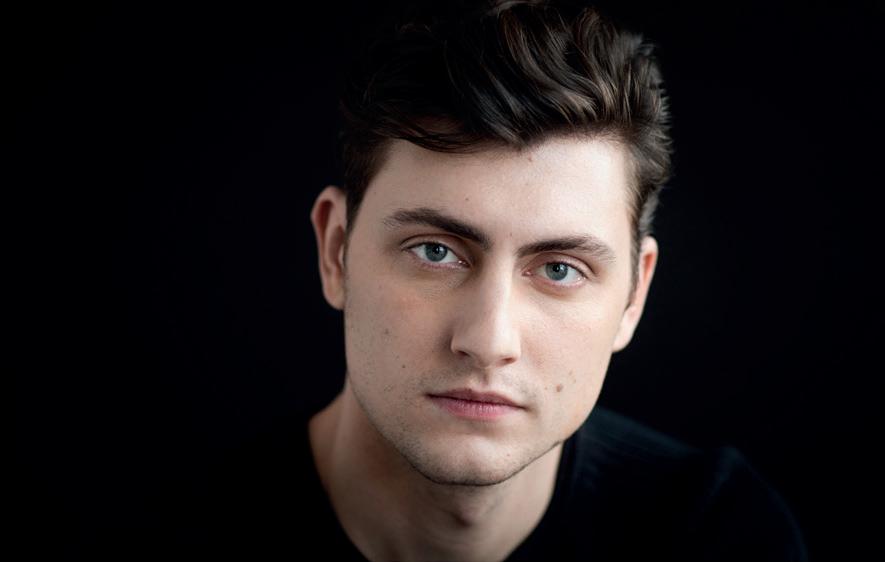
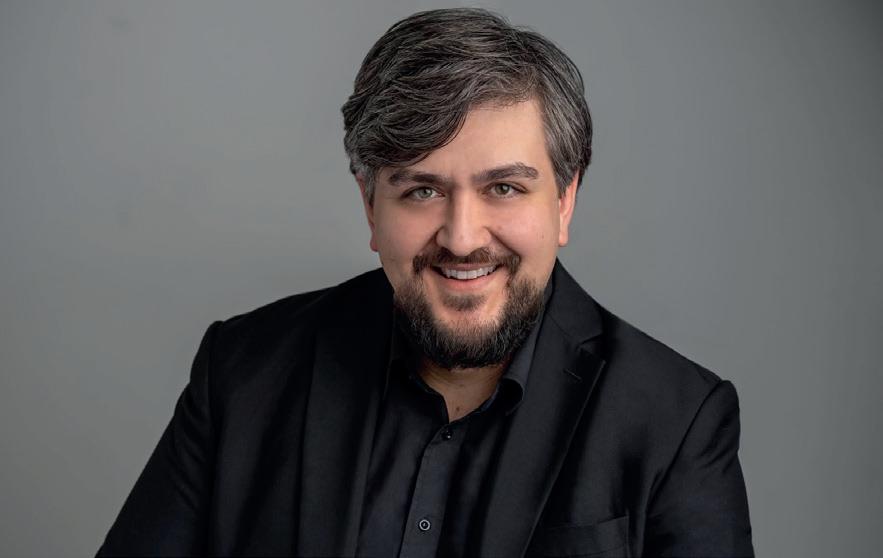
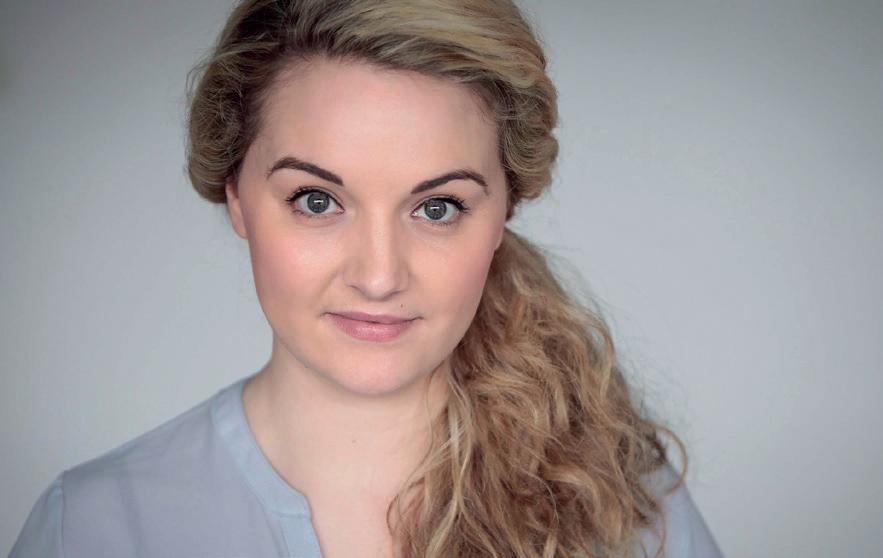
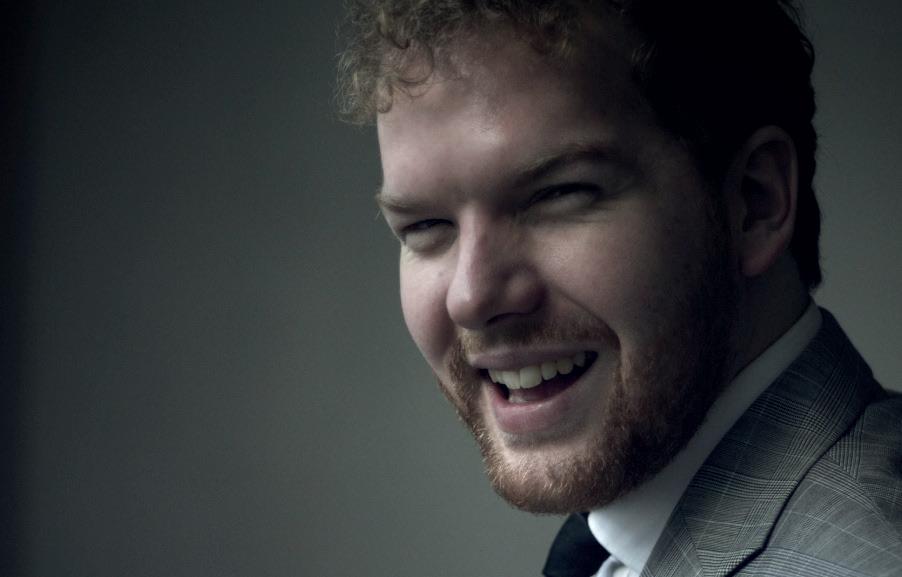
GERMÁN ENRIQUE ALCÁNTARA
© Pali Alvarez
IVÁN AYÓN-RIVAS
© Tatiana Mazzola
SERGIO VITALE
© Todd Rosenberg
BETH MOXON
© AP Wilding
ERI NAKAMURA
WILLIAM THOMAS
© Benjamin Ealovega
DAVID SHIPLEY
© Maximilian_van_London
The tenor Iván Ayón-Rivas was born in 1993 in Peru. He has studied opera under María Eloísa Aguirre González, Juan Diego Flórez, Ernesto Palacio, Vincenzo Scalera, Maurizio Colacicchi and Luigi Alva, and is currently studying in Italy with the baritone Roberto Servile. In 2013 he won Second Prize at the Peruvian National Competition for Opera Singers, and the following year he gave many solo recitals in Peru. In 2015 he won the Concorso Internazionale di Canto ‘Premio Etta e Paolo Limiti’, going on to sing in Mercadante’s Francesca da Rimini at the Festival della Valle d’Itria in Martina Franca, conducted by Fabio Luisi, and returning the following year in Verdi’s Un giorno di regno. In 2021 he won First Prize in the Don Plácido Domingo Ferrer Prize of Zarzuela and the Rolex Audience Prize at the Operalia Competition. Recent and future engagements include the lead tenor roles in La traviata in Venice, Rimini, Florence and Rome, Falstaff in Turin, L’arlesiana in Berlin, Il corsaro in Piacenza, I Capuleti e i Montecchi in Rome and at the Puccini Festival in Torre del Lago, L’elisir d’amore in Las Palmas and Bari, Rigoletto in Florence (under Fabio Luisi), Liège (under Daniele Gatti), Turin, Palermo, Rome, Venice and Tokyo, Don Pasquale and Gianni Schicchi at the Liceu in Barcelona, Eugene Onegin and Otello at the Vienna Staatsoper, Faust in Venice, Les contes d’Hoffmann in Sydney and Venice, and his La Scala debut as Malcolm/Macbeth
A graduate of the Opera Course at the Guildhall School of Music & Drama and recipient of a number of major awards, British bass William Thomas is fast making a name for himself as one of today’s most promising young singers. This season he makes debuts at La Scala Milan as Hobson in a new production of Peter Grimes and at the Royal Opera House, Covent Garden, as Colline/La bohème. Highlights on the concert platform include Rossini’s Stabat Mater with the Hallé under Sir Mark Elder and Verdi’s Requiem with the BBC Scottish Symphony Orchestra under Ryan Wigglesworth. He has also sung at the Vienna Staatsoper, Seiji Ozawa Matsumoto Festival, English National Opera, Garsington Opera, Grange Festival and Opéra de Rouen Normandie. Future highlights include returns to the Royal Opera and the Glyndebourne Festival, and debuts at the Cologne Opera and Bayerische Staatsoper. In concert he has appeared at the Salzburg Festival with Camerata Salzburg under Manfred Honeck and with the Monteverdi Choir and Orchestra under Dinis Sousa, at the BBC Proms with the Britten Sinfonia under David Bates and at the Edinburgh Festival with The English Concert under John Butt, the London Symphony Orchestra under François-Xavier Roth and the Antwerp Symphony Orchestra under Phillip von Steinacker.
Sergio Vitale studied under Renata Scotto in Rome and Renato Bruson in Siena, making his debut as Giorgio Germont/La traviata at the Deutsche Oper Berlin before going on to sing the title roles in Don Giovanni in Salerno, Gianni Schicchi in Rome, Falstaff in Fano, Il barbiere di Siviglia (under Bruno Campanella) in Naples, as well as Malatesta/Don Pasquale in Savona, Don Profondo/Il viaggio a Reims at the Rossini Opera Festival, Marullo/Rigoletto on tour to Japan with La Scala, Sharpless/Madama Butterfly in Spoleto and Don Geronio/Il Turco in Italia in Catania. Other highlights include Haly/L’italiana in Algeri at the Teatro del Maggio Musicale Fiorentino and at the Royal Opera House, Muscat; Conte Gil/Il segreto di Susanna with the Teatro San Carlo in Caserta; Marcello/La bohème in Parma and Bologna; Ping/Turandot at the Teatro Comunale in Bologna; Belcore/L’Elisir d'amore in Toulouse; title role/Rigoletto in Rouen; Falstaff at the Deutsche Oper am Rhein in Dusseldorf; Adriana Lecouvreur at the Teatro Comunale in Bologna; La traviata in Trapani, Savona, Rieti, Macerata and Limoges; Gianni Schicchi in Brescia, Como, Pavia, Cremona and Ancona; and Il maestro di cappella and Il segreto di Susanna in Genoa (where he also directed). In January he made his New York Metropolitan Opera debut as De Siriex/Fedora under Marco Armiliato, while future plans include Un ballo in maschera in Oslo, Il trovatore in Livorno, Savona and Lucca, Turandot and Maria Stuarda in Naples and Pagliacci in Limoges.
British bass David Shipley is a graduate of the Jette Parker Young Artists Programme at the Royal Opera House, where his roles include Nightwatchman/Die Meistersinger von Nürnberg, Zuniga/Carmen, Sciarrone/Tosca, High Priest/Nabucco and Dr Grenvil/La traviata. This season he sings Bottom/A Midsummer Night’s Dream in Genoa and Muscat, and Timur/Turandot for his Zurich Opera debut. Recent opera highlights include Bottom for Scottish Opera, Sparafucile/ Rigoletto for Scottish Opera and for his US debut in Houston; Somnus/Semele in Berlin; Harapha/ Samson at the London Handel Festival; Sarastro/Die Zauberflöte at Glyndebourne; Truffaldino/ Ariadne auf Naxos in Paris and Aix-en-Provence; Monk/Don Carlo for Grange Park Opera; Lt Ratcliffe/Billy Budd in Rome; Colline/La bohème, Pistola/Falstaff and Zuniga/Carmen for the Verbier Festival; and Tirésias/Oedipus Rex with the London Symphony Orchestra (recorded for LSO Live). Concert highlights include Bach’s St Matthew Passion with the BBC National Orchestra of Wales, Beethoven’s Symphony No. 9 with the Oxford Philharmonic Orchestra and Beethoven’s Mass in C in Beirut, as well as Bach’s Mass in B minor, Monteverdi’s Orfeo (at the BBC Proms) and Monteverdi’s Vespers and Handel’s Dixit Dominus (at the Salzburg Festival), all with the Monteverdi Choir under Sir John Eliot Gardiner. He has performed at Salle Pleyel (Paris), L’Auditori (Barcelona) and the Cologne Philharmonie, as well as the Barbican, Kings Place, Cadogan Hall, Christ Church Spitalfields and the Royal Albert Hall, and with ensembles and conductors including The Mozartists, Sir Antonio Pappano and Sir Andrew Davis.
Born and raised in Leeds, Beth Moxon gained an Artist Diploma from the Royal College of Music’s International Opera School and a Masters (Distinction) from the Royal Academy of Music. Having completed her studies at the National Opera Studio, she is a recent Young Artist at the Lyons Opera and Les Azuriales Festival and an ENOA/Britten Pears Scholar. She has participated in masterclasses with leading artists including Sir Antonio Pappano, Pamela Bullock, Kristine Opolais, Brigitte Fassbaender, Sir Thomas Allen, Ann Murray, David Pountney and Roger Vignoles. Her roles include Mercédès/Carmen, Mother & Sandman/Hansel and Gretel, Dorabella/ Così fan tutte, L’enfant/L’enfant et les sortilèges, Penelope/Il ritorno d’Ulisse in patria, Hermia/A Midsummer Night’s Dream, Rosimonda/Faramondo (London Handel Festival, 2017), Maurya/ Riders to the Sea, Nancy/Albert Herring and Juno & Public Opinion/Orpheus in the Underworld Oratorio engagements include Mendelssohn’s Elijah, Elgar’s The Music Makers, Verdi’s Requiem, Mozart’s Requiem, Rossini’s Petite Messe solennelle, Handel’s Messiah and Vivaldi’s Gloria. Having started as a jazz singer, she has performed in numerous venues across Leeds, including Leeds Town Hall, and has also performed in several musicals, with roles including Madame Thénardier/ Les Misérables, Miss Sherman/Fame, Grace Farrell/Annie, Bet/Oliver! and also creating the role of Medusa in Matthew Pauley and James Golborn’s contemporary musical Fleeced!. She has been generously supported by the Lionel Anthony Charitable Trust, John Lawrence Memorial Trust, Chris and Lorna Bown, Revd John Wates, Chris Ball and the late Commander and Mrs Vigrass.

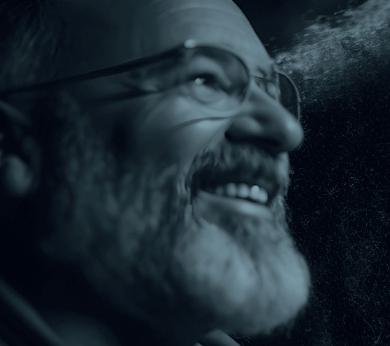

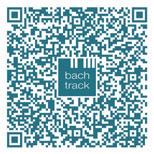
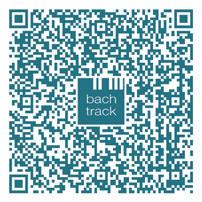
YOUTH ORCHESTRA
YOUTH CHOIR
YOUTH TRAINING CHOIR
CHILDREN’S CHOIR RECRUITING

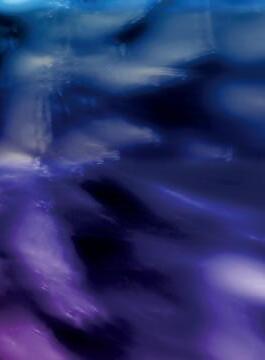

DEADLINE FOR APPLICATIONS


6 MAY 2024

WED 15 MAY, 2.15pm • THU 16 MAY, 7.30pm • SUN 19 MAY, 4pm
AT THE BRIDGEWATER HALL, MANCHESTER
SIR MARK CONDUCTS THE ENIGMA VARIATIONS
Dvoˇrák Scherzo capriccioso
Stephen Hough Piano Concerto (The World of Yesterday)
HALLÉ COMMISION • EUROPEAN PREMIERE
Butterworth A Shropshire Lad: Rhapsody for Orchestra
Elgar Variations on an Original Theme, ‘Enigma’
The Hallé • Sir Mark Elder conductor • Sir Stephen Hough piano
halle.co.uk • 0161 907 9000
As one of Opera North’s core artistic ensembles, the Chorus features in most of the company’s productions at Leeds Grand Theatre, touring the North of England regularly and often travelling to Scotland, Northern Ireland and London. Festival appearances include Aldeburgh, Edinburgh, Wiesbaden, Ravenna and Bregenz. The Chorus often gives concerts and recitals in the Howard Assembly Room, as well as in other venues in Leeds and on tour. In 2013 it performed Peter Grimes on Aldeburgh beach as part of Aldeburgh Festival’s Britten centenary celebrations.
Anthony Kraus studied at Bristol University, the Guildhall School of Music & Drama (winning the Ricordi Conducting Prize) and the National Opera Studio. He has worked widely as a conductor, chorus master and vocal coach, including at Glyndebourne, The Grange Festival, Garsington Opera, English Touring Opera and the Rossini Festival (Pesaro). He has also worked at the Royal College of Music, Royal Northern College of Music, Royal Birmingham Conservatoire, Royal Conservatoire of Scotland and English National Opera. Appointed Chorus Master at Opera North in 2003, he also served as Acting Head of Music and Assistant Head of Music until 2018. Productions he has conducted for the company include Carmen, The Marriage of Figaro, Così fan tutte, Don Giovanni, Madama Butterfly, Il tabarro, Suor Angelica, The Bartered Bride, L’enfant et les sortilèges, The Adventures of Pinocchio, Carousel, Ruddigore and Cautionary Tales!. He is Music Director of the British Philharmonic Concert Orchestra and Associate Music Director of the Sinfonia of Leeds.
SOPRANOS
Miranda Bevin
Gillene Butterfield
Charlie Drummond
Amy Freston
Sofia Livotov
Georgie Malcolm
Pasquale Orchard
Victoria Sharp
Kathryn Stevens
Aimee Fisk
Louise Wayman
Molly Barker
Helen Evora
Cordelia Fish
Siân Griffiths
Laura Kelly-McInroy
Georgie Mae Bishop
Hannah Mason
Beth Moxon
Claire Pascoe
Katie Sharpe
Katharine Taylor-Jones
Kamil Bien
Phil Clieve
Rob Gardiner
Alex Grainger
Satriya Krisna
Brian McNamee
Cameron Mitchell
Tim Ochala-Greenough
Campbell Russell
Ivan Sharpe
Tom Smith
Nick Watts
Warren Gillespie
BASSES
Nicholas Butterfield
James Davies
Geraint Miles
Paul Gibson
Simon Grange
Ross McInroy
Frazer Scott
Chris Nairne
Alistair Ollerenshaw
Andrew Randall
Dean Robinson
Gordon Shaw
Miles Taylor
The Royal Northern College of Music Opera Chorus comprises selected undergraduate and postgraduate students enrolled in the School of Vocal Studies and Opera, where they are provided with unparalleled opportunities to develop their musicianship and communication skills. The College is delighted to have professional links with opera companies, opera studios and Young Artist programmes, and many international prize-winning graduates of the College are now performing in opera houses and concert halls all over the world.
Kevin Thraves is Deputy Head of Opera at the RNCM, where he has worked on many of the award-winning operas as member of the music staff, coach, repetiteur and chorus master. He has recently collaborated with the Edvard Grieg Choir, Bergen Philharmonic and Bergen National Opera in concerts and productions including Schoenberg’s Gurrelieder, Britten’s Peter Grimes and the world premiere of Ryan Wigglesworth’s Magnificat. He has worked for many leading opera companies, including Opera North, Scottish Opera, Welsh National Opera, English National Opera, Buxton Festival and Musica nel Chiostro (Batignano), as well as with many leading UK orchestras, including the Hallé, BBC Concert Orchestra (at the Proms), BBC Philharmonic, Manchester Camerata, Academy of Ancient Music and London Philharmonic Orchestra, under the direction of Sir Simon Rattle, Barry Wordsworth, Sir Richard Armstrong, Tugan Sokhiev, Sir Neville Marriner, Peter Robinson and Edward Gardner. As an accompanist and repetiteur, he has participated in recordings and broadcasts for radio and TV both in the UK and abroad, while UK concert appearances include the Wigmore Hall, Southbank Centre, Royal Albert Hall, St David’s Hall (Cardiff) and The Bridgewater Hall. As a recitalist, he has performed at many leading international music festivals, including the Edinburgh International Festival, Wratislavia Cantans (Poland), Making Music (Malta) and the Aix-en-Provence Festival.
Jay Broadhurst
Nicholas Collins
Kristen Gregory
Ethan Jacobs
Aidan McCusker
Dominic Morgan
Jacob Parker
Patrick Parlaj
BASSES
Charlie Barker
James Connolly
Peter Entwisle
Hamish Garrity
Alexander Gibb
Callum McCandless
Patrick Osborne
Edward Wenborn






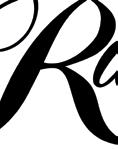

Opera Rara’s mission is to restore, record, perform and promote the lost operatic heritage of the 19th and early 20th centuries. Opera Rara is a unique combination of opera company, recording label and live operatic archaeologist. We search for neglected operatic masterpieces and restore them to life for contemporary audiences to enjoy. Working with the best singers, conductors, orchestras and musicologists, we are at the cutting edge of the opera world, leading the expansion of the repertoire and encouraging other opera companies to explore new and unknown rediscoveries.
2020 marked Opera Rara’s 50th anniversary: half a century of ground-breaking work. Our artistic success has been recognised through major awards, in the last decade alone at the International Opera Awards (Best Opera Recording) for Mercadante’s Il proscritto (2023), Rossini’s Semiramide (2019), Donizetti’s Les Martyrs (2016) and Offenbach’s Fantasio (2015); International Classical Music Award for Semiramide (Best Opera, 2019) and for Ermonela Jaho’s debut recital album
Anima Rara (Best Vocal Music Recording, 2021); Opus Klassik (Best Recording) for Semiramide (2019); and the OPER! Awards (Best Recording) for Offenbach’s La Princesse de Trébizonde (2024) and Donizetti’s L’Ange de Nisida (2019).
Our catalogue comprises over 100 titles, including more than 60 complete opera recordings. Our work has led to a fundamental re-evaluation of the reputation of composers such as Donizetti, Pacini, Offenbach and Mercadante, changing the way in which these figures are perceived internationally. The most recent example is Opera Rara’s premiere recording of Mercadante’s opera Il proscritto, painstakingly restored from the original manuscript over two years, which was released worldwide in April 2023 and won an International Opera Award later the same year.
Opera Rara’s Artistic Director Carlo Rizzi was appointed in 2019. Since then he has recorded a new critical edition of Donizetti's L'esule di Roma, the original 1912 version of Leoncavallo’s Zingari as well as Il proscritto, whose discovery and restoration he championed. In 2022, marking Donizetti’s 225th birthday, we announced Ermonela Jaho and Michael Spyres as Artist Ambassadors, commemorating their long and acclaimed work with the company. Over three years, we will record and perform all of Donizetti’s solo songs, many of which have never been heard by modern audiences. Led by Rizzi, the project will see eight new recordings featuring renowned artists including Jaho and Spyres: in addition, concerts at Wigmore Hall (the next on 23 May) will feature Ermonela Jaho with Rizzi at the piano joined by his brother Marco Rizzi on the violin. Opera Rara’s next release will be the first set of studio recordings of Donizetti’s songs, featuring Lawrence Brownlee and Nicola Alaimo, in autumn 2024.
www.opera-rara.com

There is no musical joy greater than discovering, uncovering, restoring, and then hearing a beautiful piece of music for the first time in living memory, all brought to life in a concert hall and in a studio recording.
As a supporter of our work, you see the impact of your donation by immersing yourself in the process of uncovering rare operatic gems under the guidance of world-renowned musicologists, artists and industry professionals involved in an Opera Rara project opera-rara.com/support
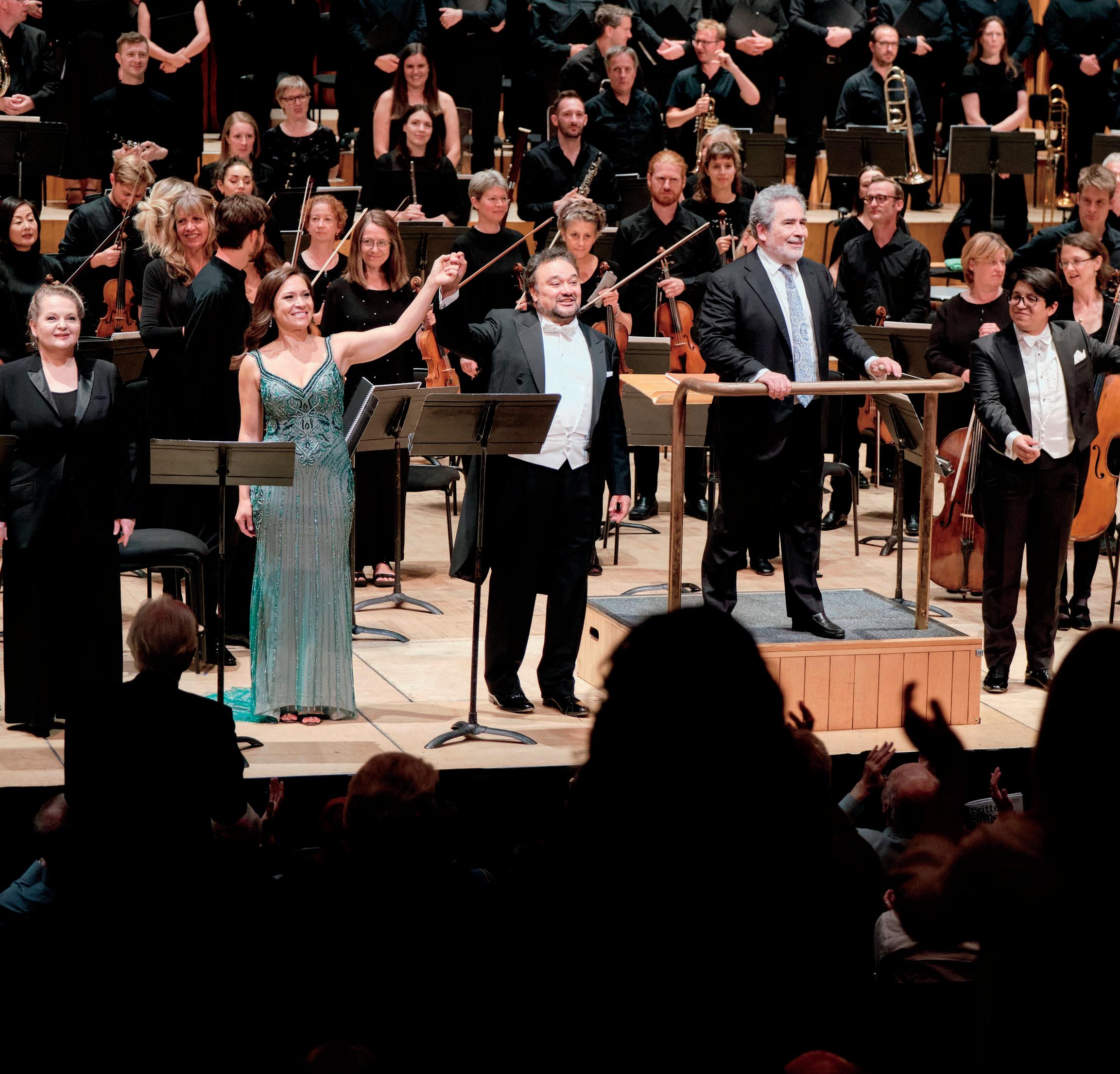
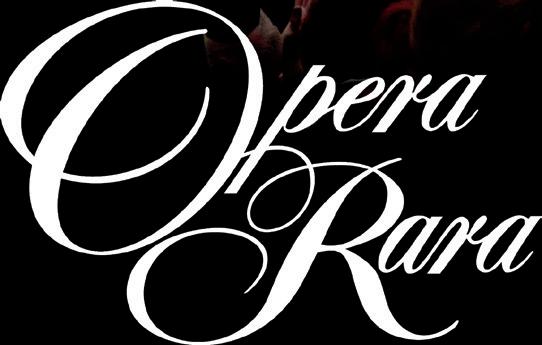
‘Elder’s orchestra was in full flight ... the Hallé is one of the world’s best orchestras.’ The Times, 2022
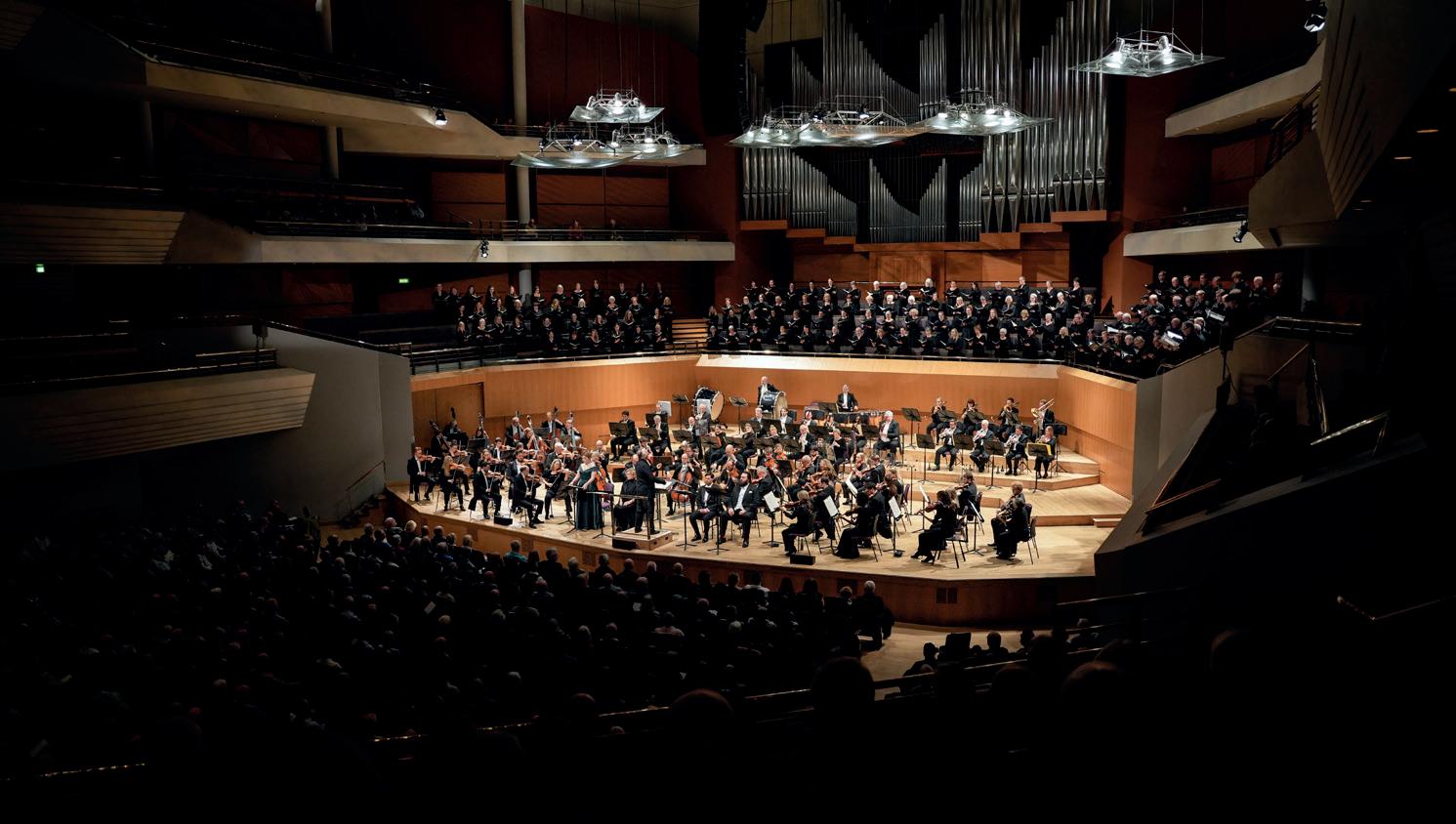
Innovation has been central to the Hallé since its foundation in 1858 by Sir Charles Hallé, a true pioneer. His fundamental belief that music should be for everyone remains central to the orchestra’s vision today, yet the Hallé is much more than just a world-beating symphony orchestra. Its collective spirit can be felt in the variety of communities it embraces, the diversity of the ensembles it nurtures and the array of different concerts it offers.
Since 1858, Sir Charles Hallé’s ground-breaking work has been continued by other musical legends: Hans Richter, Hamilton Harty, John Barbirolli and Sir Mark Elder. The 2023–2024 season is Sir Mark’s final one as Music Director: he will be stepping aside after almost a quarter of a century at the helm. From the 2024–2025 season, Sir Mark takes the role of Conductor Emeritus and passes the baton to Kahchun Wong, who opens a new chapter for the Hallé as Principal Conductor and Artistic Advisor.
Sir Mark Elder bookends the 2023–2024 Manchester season with two very special Mahler symphonies (Nos. 9 and 5). Overflowing with extraordinary music, stellar artists and exciting new collaborations, the season includes orchestral, operatic and choral showpieces such as Elgar’s Enigma Variations, Verdi’s Simon Boccanegra and Ravel’s Daphnis and Chloe. Thomas Adès, one of the most celebrated living composers and conductors, joins the Hallé for the first of two seasons as Artist-in-Residence.
At the heart of the Hallé are its players, led by their dynamic Leader, Roberto Ruisi. Hailing from over 14 different countries, they are extraordinary, multi-skilled individuals in their own right – soloists, chamber musicians, educators and more – who, when united in concert, create the unique and world-famous Hallé sound.
Originally based in Manchester’s Free Trade Hall, the Hallé has been resident at the specially built Bridgewater Hall, one of the world’s great concert venues, since it was opened in 1996. Hallé St Peter’s opened in the resurgent area of Ancoats in 2013 and now includes the triple RIBA Award-winning Oglesby Centre. It provides a home for the Hallé to rehearse, record and perform, as well as a base for Hallé Connect, the Hallé’s extensive education, community outreach and ensembles programmes.
The Hallé performs to over 100,000 people annually at The Bridgewater Hall and this season its expanded offering includes hour-long immersive Rush Hour concerts, specially devised family performances and a series of unique collaborations with celebrated artists from other genres in ‘The Hallé Presents …’. Hallé St Peter’s hosts a series of relaxed concerts and an incredibly popular lunchtime Chamber Series that frequently attracts capacity audiences.
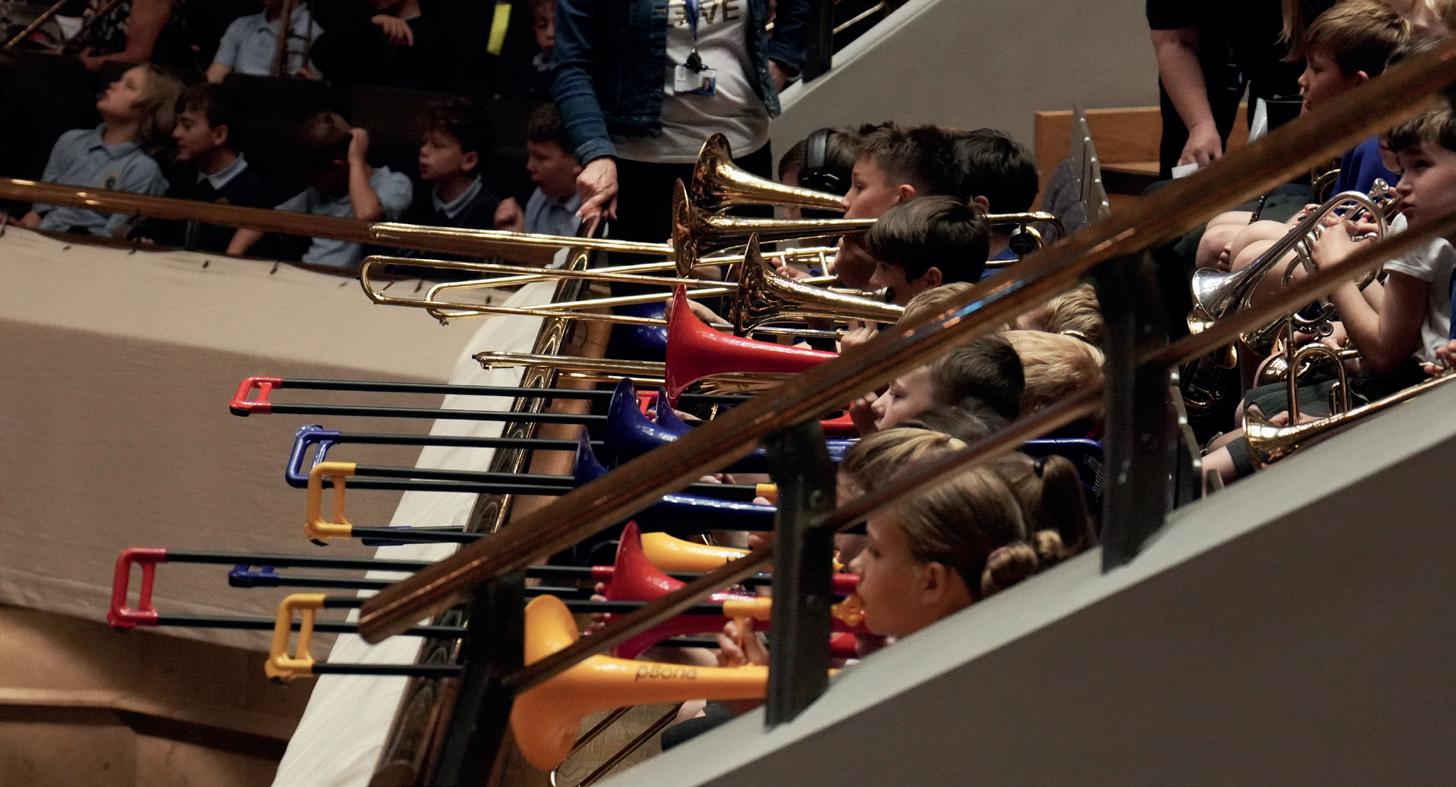
One of the biggest initiatives of its kind in the world, Hallé Connect’s education and outreach projects inspire and engage more than 76,000 people a year, bringing music in its broadest sense to many who have never before visited a concert hall. The ever-expanding family of ensembles welcomes over 700 people, aged eight and upwards, through its doors each week.
In addition, the Hallé holds residencies in major cities across the North West, performs regularly at prestigious international festivals, such as Edinburgh and the BBC Proms, and tours overseas, reaching another 70,000 listeners, both here and abroad. Encouraged by an enhanced social media presence, the Hallé has seen a dramatic increase in younger audiences, as well as the launch of its own record label, filmed concerts released online, expanded repertoire with brand-new commissions and numerous awards, including a 2022 South Bank Sky Arts Award.
FIRST VIOLINS
Roberto Ruisi leader
Sarah Ewins associate leader
Tiberiu Buta
Zoe Colman
Steven Proctor
Helen Bridges †
Nicola Clark †
Victor Hayes †
John Gralak †
Katie Jackson
Eva Petrarca
Sarah Whittingham
Belinda Hammond
SECOND VIOLINS
Marie Schreer section leader
Paulette Bayley
Caroline Abbott †
Grania Royce †
Christine Davey †
Elizabeth Bosworth †
John Purton
Yu-Mien Sun
Heather MacLeod
Sian Goodwin
VIOLAS
Timothy Pooley † section leader
Julian Mottram †
Piero Gasparini †
Robert Criswell †
Chris Emerson †
Victoria Stephenson
Alice Billen
Rosamund Hawkins
CELLOS
Simon Turner
Dale Culliford †
David Petri †
Jonathan Pether
Heather Bills
Theo Bentley-Curtin
Lizzie Elliott
Miriam Roycroft
DOUBLE BASSES
Billy Cole section leader
Daniel Storer
Yi Xin Han †
Beatrice Schirmer †
Rachel Meerloo
Sian Rowley
FLUTE
Amy Yule section leader
PICCOLO
Daniel Swani
OBOES
Stéphane Rancourt section leader
Virginia Shaw †
COR ANGLAIS
Thomas Davey †
CLARINETS
Sergio Castelló López section leader
Rosa Campos-Fernandez
BASSOONS
Siping Guo
Elena Comelli
HORNS
Laurence Rogers † section leader
Matthew Head
Julian Plummer †
Richard Bourn †
Andrew Maher
TRUMPETS
Gareth Small † section leader
Tom Osborne
TENOR TROMBONES
Katy Jones section leader
Rosalyn Davies †
BASS TROMBONE
Kyle MacCorquodale
TUBA
Ewan Easton mbe †
TIMPANI
John Abendstern
PERCUSSION
David Hext † section leader
Riccardo Lorenzo Parmigiani †
Erika Öhman
HARP
Marie Leenhardt †
Eira Lynn-Jones
BANDA
PICCOLO
Isabeau Hansen *
CLARINETS
Nathan Kenworthy *
George Blakesley *
Abigail Martin *
PICCOLO CLARINET
Sarah Masters
HORNS
Molly Bielecki *
David Tillotson *
Barry Chak-Hin Lo *
TRUMPETS
Robbie Richardson
Miranda Woodward
Seb Williman *
Andrew Farrow *
TENOR TROMBONES
Chris Binns
Ross McDonnell *
Rachel Wong *
BASS TROMBONE
Richard Broomhead
The list of players was correct at the time of going to press.
† = 20 years’ service
* = Students from the RNCM


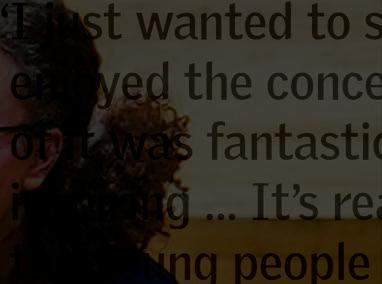
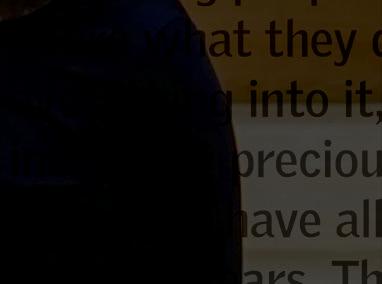

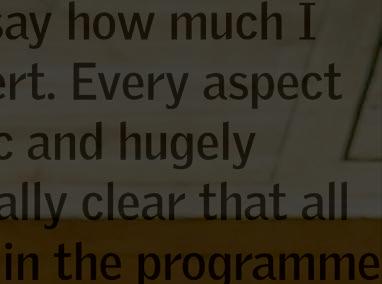
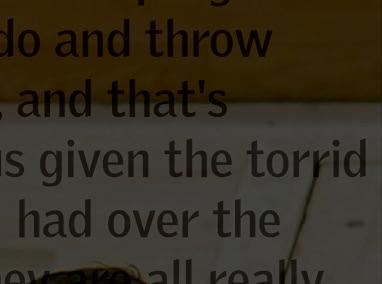
‘I just wanted to say how much I enjoyed the concert. Every aspect of it was fantastic and hugely inspiring … It’s really clear that all the young people in the programme adore what they do and throw everything into it, and that's incredibly precious given the torrid time they have all had over the last few years. They are all really lucky to have the Hallé in their lives and the opportunities that you are giving them.’
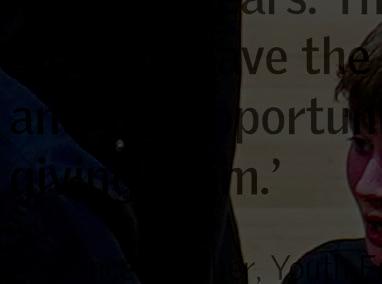


Audience member, Youth Ensembles Showcase Concert

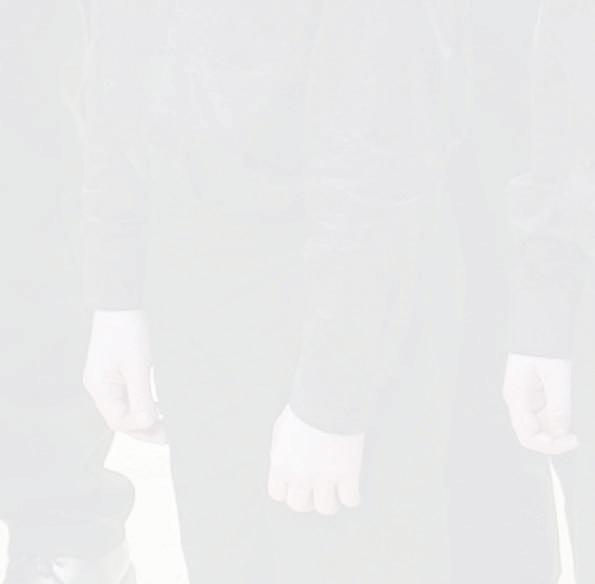
Whilst Sir Mark Elder has been Music Director, our family of ensembles has increased to offer not only the Hallé Youth Orchestra but also our Youth, Youth Training and Children’s Choirs. Under the banner of Hallé Connect, more than 300 young people receive weekly musical training of the highest standard.
Please help us sustain this wonderful work as we inspire the next generation of musicians and audience. Funds donated by our Patrons and Chair Endowers contribute directly to support our ensembles every year.
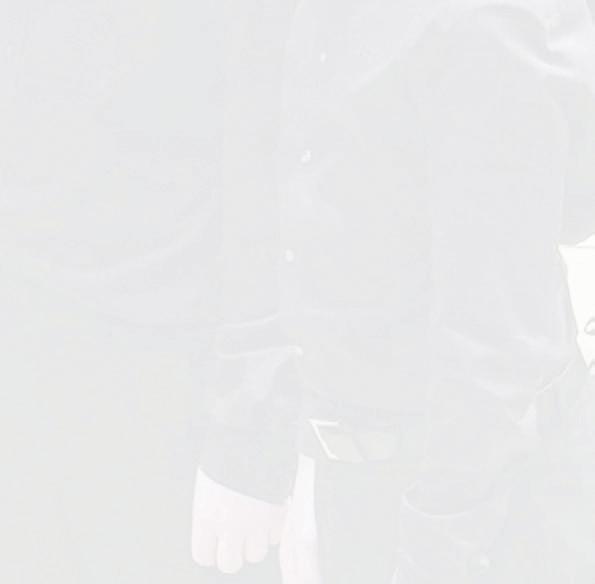
Join the Hallé family of supporters this season and help safeguard Sir Mark’s championship of Hallé Connect. We have events planned that will give you unique insights and opportunities to feel more connected to the orchestra you love, and be a part of building its future.

Find out more at halle.co.uk/support-us
MUSIC DIRECTOR, SIR MARK ELDER CH CBE
Mr Martin McMillan obe and Mrs Pat McMillan
CHIEF EXECUTIVE
DAVID BUTCHER
Hamish and Sophie Forsyth
LEADER
ROBERTO RUISI
Penny Moore
GUEST LEADER
In memory of Geoffrey Robinson
ASSISTANT CONDUCTOR, EUAN SHIELDS
PZ Cussons, Sir Mark and Lady Elder, The Garrick Charitable Trust,
CHORAL DIRECTOR, MATTHEW HAMILTON
In memory of Alison Wilkie-Davies
SECOND VIOLINS
MARIE SCHREER
Patrick & Tricia McDermott
PAULETTE BAYLEY
Karen Farquhar
ROSEMARY ATTREE
In memory of the late Marie and Jack Levy
CAROLINE ABBOTT
Peter and Mary Jones
DIEGO GABETE
In memory of Sidney & Toni Powell
JOHN PURTON
In loving memory of Michael Hall
VIOLAS
TIMOTHY POOLEY
Dr Susan M Brown
MARTIN SCHÄFER
David and Beryl Emery
PIERO GASPARINI
Mrs Jane Fairclough
CHRIS EMERSON
FIRST VIOLINS
SARAH EWINS
Elaine and Neville Blond Charitable Trust
TIBERIU BUTA
Dr Anne R Fuller
ZOE COLMAN
John Geddes
POSITION VACANT
In memory of Jennifer MacPherson
POSITION VACANT
Mrs Vivienne Blackburn for Michael
HELEN BRIDGES
Professor Chris Klingenberg
POSITION VACANT
In loving memory of Kaye Tazaki, from his family and the Hallé
KATIE JACKSON
Philip & Helen Wiles
Bolton Opus Group
GEMMA DUNNE
In memory of Diz Shirley and happy days at Chipping Camden
CELLOS
NICHOLAS TRYGSTAD
Sandra Stone and in memory of Martin Stone
SIMON TURNER
In memory of Mrs G E Whitehead
DALE CULLIFORD
Prestbury Opus Group
DAVID PETRI
K and S Coen
JANE HALLETT
Professor Sir Netar Mallick
CLARE ROWE
Nina Harris
JONATHAN PETHER
Charlotte Westwood
POSITION VACANT
In loving memory of Dorothy Hall
DOUBLE BASSES
BILLY COLE
Edmundson Electrical Ltd
DANIEL STORER
Jonathan Clowes
YI XIN HAN
In memory of Stella and Harold Millington
NATASHA ARMSTRONG
John and Pat Garside
RACHEL MEERLOO
In loving memory of Hilmary Quarmby, a lifelong lover of music and friend of the Hallé
FLUTES
AMY YULE
Mr Peter Heath
SARAH BENNETT
In loving memory of Mrs Anna Drackley
PICCOLO
JOANNE BODDINGTON
In memory of Ronald Marlowe
OBOE
STÉPHANE RANCOURT
sponsored by The Duchy of Lancaster
Benevolent Fund
VIRGINIA SHAW
Alison Wilkinson
COR ANGLAIS
THOMAS DAVEY
In loving memory of Douglas Crawford
CLARINET
SERGIO CASTELLÓ LÓPEZ
The Hallé Choir
BASS CLARINET
JAMES MUIRHEAD
Shared Trust
BASSOONS
PRINCIPAL, POSITION VACANT
In memory of Miss Amy Alexandra Morris
ELENA COMELLI
Anonymous
HORNS
In memory of Arthur Bevan and Enid Roper
LAURENCE ROGERS
In memory of C K Andrews
JULIAN PLUMMER
Sir Warren Smith
RICHARD BOURN Shared Trust
MATTHEW HEAD
In loving memory of Nora Dawson
TRUMPETS
GARETH SMALL
Shared Trust
KENNETH BROWN Shared Trust
TOM OSBORNE
Penny Moore
TROMBONE
KATY JONES
Sylvia Kendal in memory of Ivor Rowe
TIMPANI
JOHN ABENDSTERN
In memory of Alan and Vivian Glass
PERCUSSION
DAVID HEXT
Rosemary Whitesman
ERIKA ÖHMAN
Mrs R Russell in loving memory of her husband, Jim Russell rba;
HARP
MARIE LEENHARDT
Mr John D. Owens
HALLÉ YOUTH ORCHESTRA
BASSOONS
Mr C R and Mrs E Anslow
PERCUSSION
Karen Brown
CELLOS
The Holland-Frickes
Mr John Summers obe
WOODWIND AND CELLOS
In memory of Peter & Helen Pearce
Anonymous
HALLÉ YOUTH CHOIR
SOPRANOS AND ALTOS
Mr and Mrs Smith
HALLÉ CHOIR
Jane Hampson
ALTOS
Chris Hughes
Sincere thanks also to those who have made donations to the Chair Endowment programme during the recent months.
The Chair Endowment programme is an opportunity for you to be associated with one of our players and link your name with a position in the orchestra. Your gift will help us to ensure the Hallé continues to develop artistically, attracting and retaining musicians of the highest quality.
The key to a successful orchestra is the quality of the individual players. We are fortunate to have some of the country’s most gifted musicians whose talent and commitment help keep the Hallé among the finest orchestras in the world.
Find out more at halle.co.uk/support-us


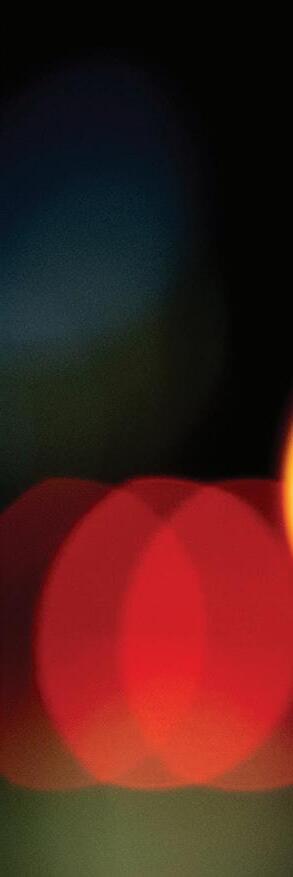



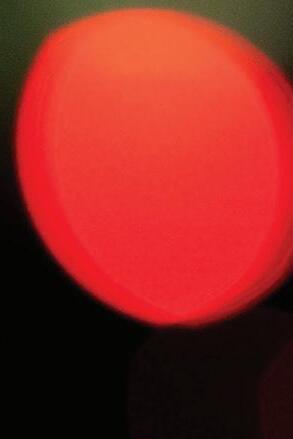
THURSDAY
Arnold Peterloo Overture
Fauré Requiem


10'
36'
Arnold (arr. Ben Parry) Peterloo Overture
Kahchun Wong conductor
Hallé Choir mattheW hamilton choral director
10’
Kahchun Wong, the Hallé’s Principal Conductor Designate from the 2024/25 season, wowed Hallé audiences with his visits last season.


Characterised as a ‘ball of energy and charm’ (The Guardian), he returns to conduct the Hallé and Hallé Choir in Fauré’s contemplative Requiem. Fauré’s vision was one of solace and hope beyond the grave, which he viewed as ‘a happy deliverance, an aspiration towards happiness above.’
A much-loved work, its glories include: the Sanctus, with its violin solo offering celestial balm; the tender beauty of the soprano solo’s Pie Jesu; and the rippling accompaniment of In Paradisum, sublimely evoking a sense of heavenly peace. Two versions of Malcolm Arnold’s evocative Peterloo Overture, one orchestral and one vocal, compliment this choral masterpiece.
Tickets (including fees) from £17.50 to £22.50, concessions and discounts are available

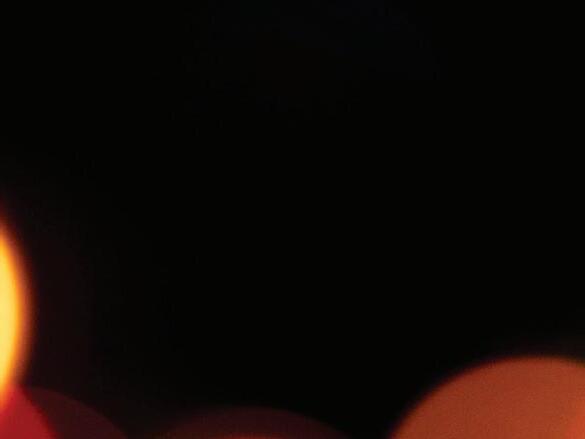

Join us for more music, performed by members of the Hallé Youth Ensembles.
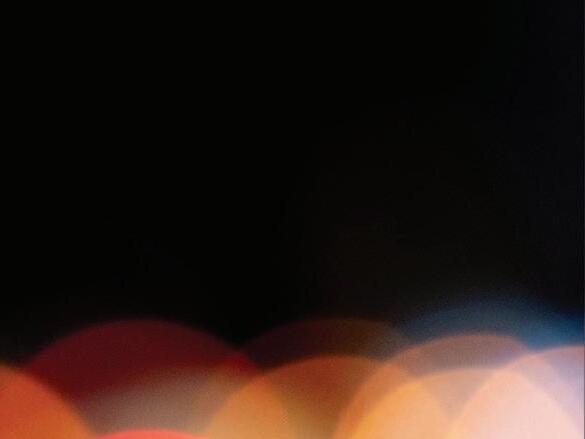
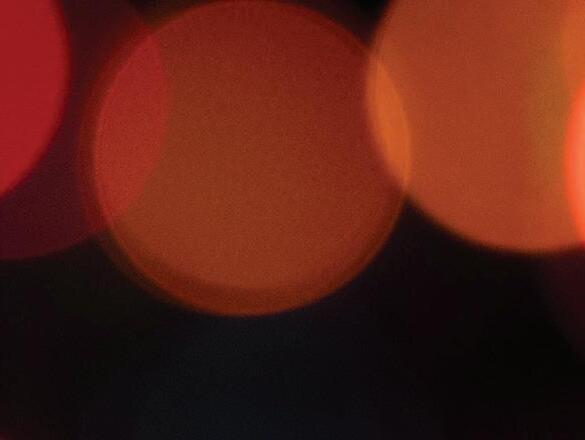
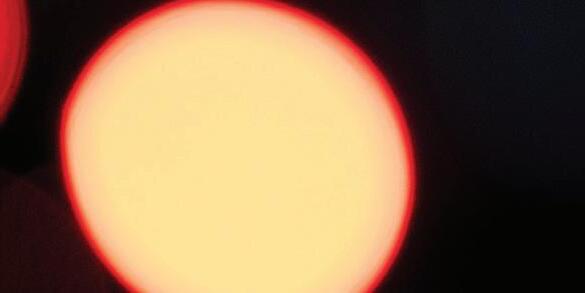
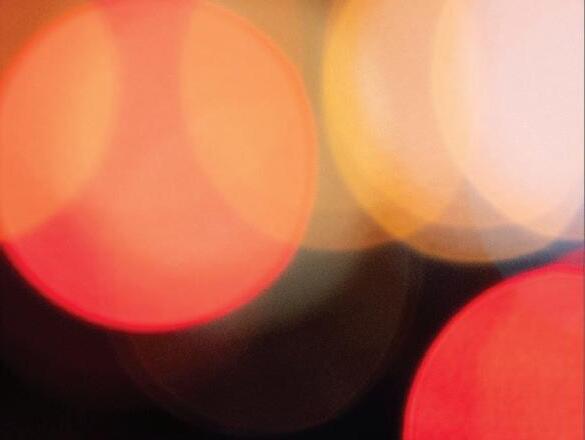

Discover which concert halls the Hallé has played in, what pieces have been performed, the soloists who have joined the orchestra and when the concerts took place using our fully searchable online tool, which covers the Hallé’s 165 year history.
Become a community archivist and research the Hallé history today at https://archive.halle.co.uk
For more information email archive@halle.co.uk



















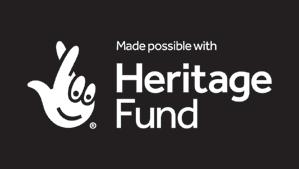




















The digital repertoire database is made possible with The National Lottery Heritage Fund. Thanks to National Lottery players, we have been able to support volunteers in the Ancoats: the Hallé Story project who have brought the Hallé’s history to life.

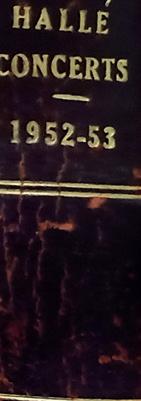



Dinner, Bed & Breakfast at Stock Exchange Hotel with Sexy Fish Manchester.
Check in to Stock Exchange Hotel choosing one of their signature suites & rooms before taking a short walk over to Spinningfields newest restaurant, Sexy Fish Manchester. Delight in an evening of culinary excellence and dynamic vibes as you dine off their Hiro menu, which highlights timeless classics showcasing the very best of the restaurant.
Guests will be immersed in an energetic atmosphere ensuring an unforgettable evening.
Packages can be booked via emailing reservations@stockexchangehotel.co.uk
T&C’s apply.
4 Norfolk Street, Manchester M2 1DW
www.stockexchangehotel.co.uk
1 The Avenue, Deansgate, Manchester M3 3AP
www.sexyfishmanchester.com
The Hallé would like to thank the following for their ongoing support:
The Monument Trust
The Oglesby Charitable Trust
Esmée Fairbairn Foundation
The Foyle Foundation
Granada Foundation
Garfield Weston Foundation
The Kirby Laing Foundation
The Liz and Terry Bramall Foundation
The National Lottery Heritage Fund
Paul Hamlyn Foundation
The Victoria Wood Foundation
The Wolfson Foundation
The Zochonis Charitable Trust
29th May 1961 Charity
The Band Trust
The Beaverbrooks Charitable Trust
The Boris Karloff Foundation
Boshier Hinton Foundation
Church Burgesses Educational Foundation
D’Oyly Carte Charitable Trust
Duchy of Lancaster Benevolent Fund
DWF Foundation
Garrick Charitable Trust
The Gisela Graham Foundation
The Grand Trust CIO
The Greater Manchester High Sheriff’s Police Trust
The Harding Trust
The Ironmongers’ Company
John Horniman’s Children’s Trust
John Thaw Foundation
The Irving Memorial Trust
Land and Co Foundation
The Lee and Barkirgian Family Trust
McLay Dementia Trust
N. Smith Charitable Settlement
The Nugee Foundation
Peter Cunningham Memorial Fund
Cecil Pilkington Charitable Trust
Pilkington General Charity
Q Charitable Trust
The Radcliffe Trust
Rainbow Dickinson Trust
The R K Charitable Trust
RUSI (The Royal United Services Institute)
Sir George Martin Trust
Sale Mayoral Fund
The Sobell Foundation
The Thistle Trust
Thriplow Charitable Trust and others who wish to remain anonymous
HALLÉ FAMILY OF BENEFACTORS
Mrs A. Alford
Mr C. K. Andrews
Mr and Mrs Black
In Memory of Rabbi Felix Carlebach from his family, friends and supporters
Pamela Cate
Mr Peter Copping
Miss Rebecca Louise Finch
Mrs Vivian Glass
Mr Harry Johnson
Mr A. and the late Mrs A. Johnson
Kenneth Kay
Mr C. H. Pooley
Brian and Glenna Robson
Bernadette Rudman
Mr and Mrs R. P. Shepherd JP DL
Lynne and Bob Spencer
Mr and Mrs Brian Tetlow
HALLÉ BUSINESS CLUB
PLATINUM
Brother
Greater Manchester Chamber of Commerce
GOLD
BDO LLP
SILVER
Beaverbrooks
Bruntwood
Tony and Daniela Coxon
Elcometer
Esprit Group
Kuit Steinart Levy LLP
HOLDERS OF THE HALLÉ SILVER MEDAL FOR PHILANTHROPY
John & Margaret Allen
Stewart Grimshaw
Michael and Jean Oglesby
Terry and Penny Moore
Arthur Reynolds
Jurgen Maier
David McKeith
Stuart Robinson
2058 FOUNDATION
PRINCIPAL BENEFACTORS
Manchester Airport
Mr Martin McMillan obe and Mrs Pat McMillan
The Oglesby Charitable Trust
Fred Nash and Carole
Nash obe
Tiger Developments
CIM Investment Management Ltd
DLA Piper LLP
Rothschild
MAJOR BENEFACTORS
Peter Heath
David and Mary McKeith
Brother (UK) Ltd
PZ Cussons plc
Nigel Warr
David Wertheim and Family
Kirby Laing Foundation
Kobler Trust
Martin and Jacqueline West
The 2058 Foundation is a restricted fund of the Hallé Concerts Society established in the Hallé’s 150th Anniversary year to support specific artistic and education projects.
SUPPORTERS OF THE OGLESBY CENTRE AT HALLÉ ST PETER’S
The Oglesby Charitable Trust
The Monument Trust
The Dunard Fund
The Foyle Foundation
Garfield Weston Foundation
Granada Foundation
The Kirby Laing Foundation
Victoria Wood Foundation
The Wolfson Foundation and all those who supported The Oglesby Challenge and those who wish to remain anonymous
AMERICAN PATRONS
Caroline Firestone
Rita Z. Mehos
Christa Percopa
Arthur Reynolds
Annette Vass
LONDON PATRONS
Joyce Hytner
John Nickson and Simon Rew
John & Margaret Allen
Dr Anne R Fuller
Pat Kendall-Taylor
Professor Chris Klingenberg
Patrick & Tricia McDermott
David & Mary McKeith
Dr & Mrs Ian McKinlay
OBE
Penny Moore, for Terry, who loved the Hallé
Mike & Joanna Sambrook
In memory of Lynne
In memory of Alfred & Brenda Burley
In memory of Helen Cleary
Brian & Valerie Bailey
Dr Susan M Brown
Mr David A Budgett
Mrs S. Davnall
Valerie & Peter Dicken
Mrs Juliet Gibbs
Andrew Hay & Nicola Kitching
Mark Kenrick
In memory of Jennifer MacPherson
John & Pat Turner
Mr Jon & Dr Carol Ashley
Mike & Ros Barton
Audrey & Richard Binch
David & Maggie Blackburn
Mrs Vivienne Blackburn
Clair Boyes
Dr Christopher Brookes
Dr & Mrs Michael & Diana Cavanagh
Lawrence David Cody & in memory of Mr & Mrs L.
J. Cody
Philip Crookall
Mr A Fowell
Mr & Mrs J. Fox
Mr Richard Garnett
Chris & Karen Halicki
Miss Lynne Hamilton
Dr Andrew Hardman
Mrs C. A. Harmer
Ms Val Hawkin
David Haworth
Margaret Heaton
Mr John Hopwood & Dr
Julia Morrison
Professor Nicholas & Dr
Mary Jones
Kenneth Kay
Mr Michael Leach
Mr Colin Lomax
Dr Alexander Marsland
Mr Vincent Marsland
Sir Charles Nightingale
In memory of Mrs Kathy Noble
Mr John D Owens
Mr D Pritchard
AC & CJ Riddington
T. G. Roberts
Will Roddy
Judith & Patrick Rutter
John & Susan Schultz
Dieter Senn
Mr David Shipley
Mrs E. G. Tonge
Sheila Tonge
Mr John Turner
Lynne & Derek Waterfield
Philip & Helen Wiles
Judi Winterson & David Hoyle
Craig & Margaret Wright
For music
In memory of Brenda Owens
In memory of Father David Peters
Dr D Yvonne Aplin
Joan Ball
Tony Bates
Professor Tony Berry
Mr Keith A Bevan
Mrs Margaret Bradshaw
Monica Clark & in memory of Mick
Jonathan & Elizabeth Clowes
Pamela Craig
Sarah Crouch
Peter J Dawson
Mr Anthony Doust
Dr George A Eccleston
Rev’d & Mrs J F Ellis
Charlie Fleischmann
Ann Flowerday
Debbie & Paul Francis
Jeremy & Gillian French
Mr John Hannah
Mrs Bessie Harper
Callum Harvey
Mr & Mrs D Hawkes
Peter & Audrey Hewer
Mr Peter Hocking
J E Hoffmann & B J Harrocks
Chris Hughes, to mark 45 years with the Hallé Choir
Mr Simon Hutchence
Dr Keith Jeffery & Patrick Geary
Mrs Wendy Jeffs
Mr J G Knox
Mr & Mrs B H Lawrence
Mr & Mrs R W Lee
Mr Alan Lowe
Mr Kevin Lyons
Mr T Marsden
John & Mary McPeake
Stephen & Jacqueline Miley
Mrs Alison Milford
Miss Maire Morton
John Nickson & Simon Rew
Malcolm & Morag Ranson
Joan & Graham Rogers
Dr T & P E Schur
Sandra Stone & in memory of Martin Stone
Mr & Mrs Suter
Phil Thornley
Mrs M Warrener
Mr J C White
Professor Richard Whitley
Mr John Wildman
Joan Wood
In memory of Jean Dowling
In memory of Albert Mesrie
In memory of Arthur Newton, from his family and friends
SCHERZO
Mr Peter Adamson
Mr Timothy R Ades
Dr Katherine M Adler
Ms Seifa Afiesimama
Mrs J Ainsworth
Mr Roger Ainsworth
Vin Allerton
Dr P J Alvey
Dr Peter Barberis
Mr Michael Barley
Mrs J E Baxendale
Mr Steve Best
Mr D J Bird
Mr Stuart Bishop
Dr Howard Booth
Mr David Bradley
Arnold & Brenda Bradshaw
Philip Broughton
Mr Dean Brown
Mr Andrew Bryan
Peter Burgess
Barbara & Anthony Butcher
Tina Bywater
Miss Christine S Catherall
Mrs B Y Chubb
Mrs Kathleen Cleary
Mrs Gina Collison
Mr David Cooke
Mrs Frances Critchley
Mr John Critchley
Hilary & Adrian Curtis
Mrs J D Darwent
Dr D Dawson
Dr Jeffrey J Dean & Dr
Penelope M Gouk
Mr & Mrs B A DeSousa
Mrs Marie Dixon
Mr Paul Durham
Mr E Alan Eaves
Chloe Eissa-Hoyos
Miss E Evans
Professor Patrick Farrell
David Farrow
Mr Alan Freeman
Dr Tim Gartside
Mrs Elaine M Gavin
Mr Adrian Gerrard
Mrs J Gill
Mrs Mary Glynn
Mr Christopher Grafham
Mr & Mrs R Green
Mr & Mrs S R Lancelyn Green
Mrs Caroline Greenwood
Mr John D Gregory
Dr R Gregory
Mr J B Haddow
Dr I M Hall
Paul & Amanda Hamblyn
Mr C W Hampson
Brian & Bridget Harris
Mr Simon Harrison
Mrs J M Hartley
Mr N V Haynes
Mrs Dorothy Heaton
Mr Cliff Heckle
Donald & Carolyn Henderson
Mrs G Hewitt
Miss Pauline Hickey
Mr & Mrs J M Hill
Peter & Charlotte Hill
Mrs J M Hindshaw
Mrs Janet Holwill
Dr W Hoyle
Mr H Hughes & Mrs F
Hughes
Mrs Glynys Hunter
Dr Steven Hurst
Joyce Hytner
Alma Jones, & in memory of Frank
David & Fae Jones
Christine & Michael Jones
Mr Trefor Jones
Miss Brunhilde Kay
Clare Knight
Jennifer & Paul Lingwood
Mr Harry Lipson
Mrs Dorothea Livesey
Virginia & Peter Lloyd
Mr F P S & Mrs D A B Marriott
Dr & Mrs P J Marriott
Mr P Marsh & Ms H M Bennett
Mrs C Mason
Dr Michael Mattison
Mrs E McCrone
Mrs Angela McMenemy
Dr David Miers
Mr David Milner
Mr Jeff Milner
Mrs Jean Moorhouse & in memory of the late Mr Peter Moorhouse
Ms Kathleen Morris
Miss Jean Motler
Mr P K Murphy
Mr David Odling
Professor Damian O’Doherty
William & Janet Ollier
Mr John Peaker
Dr John Pearson
David & Elizabeth Pioli
Mr V M Potapczuk
Professor James Powell OBE
Mrs Jean Proud
Dr Cameron Pyke
Mr D Radley
Mr Peter Ramsden
Mrs Beryl Ratcliffe
Kathleen & Alasdair Renfrew
Angus & Jenny Reynolds
Mr Paul Reynolds
David & Elly Roberts
Elizabeth & Hugh Roberts
Mrs A Rose
Mrs Susan Rowlands
Professor Michael G Rusbridge
Mr D. S.
Martin & Gail Sanderson
John & Jackie Say
Mrs Jan Schofield
Mr James A Scott
Mr Simon Shelbourn
Mr C & Mrs T Shepherd
Mr Michael J Shiels
Charles & Helen Smith
Mr & Mrs C Smith
Mr Roger Smith
Mr Alan Spier
Mr & Mrs R T Stafford
Mr Frank Stoner & Mrs Margaret Dudley-Stoner
Mrs Norma Swan
Mrs M. E. Thompson
Mr John Thomson
Mrs Jean Tracy
Mrs Jackie Tucker
Tom Uprichard
Mrs Barbara Upton
Mr Peter & the late Mrs Diana van der Feltz
Jeffrey & Judith Wainwright
Mr Brian Walker
Mr R B Walsh
F T Walters
Mrs Anne Ward
Mr & Mrs J M Watson
Mrs Lynn Wharton
J Christopher Whitehead
Mr A Whittaker
Gladys Williams & in memory of Dennis Dodge
Mr Thomas Williams
Barry Wood
Hilary & the late Noel Woodhead
Mrs Ann Woolliscroft
Dr J M Worth
D & M Wright
David & Veronica Yates
Dr David Yorke
A music lover
In memory of my parents
In memory of Margaret Brailsford
In memory of O Calvert
In memory of Mr Tom Chadwick
In memory of Liz Glynn
In memory of D S Goodes
In memory of Dr D B Jones
In memory of Meinir McDonald
In memory of Patsy Pringle
In memory of Dr Barbara Smith
In memory of Arthur Stanley Thompson
In memory of John Wallace Tonge
By joining the Hallé Patron programme you can become part of a family of supporters who are helping to shape the future of the Hallé.
Patrons have access to unique opportunities to experience many different facets of the Hallé alongside musicians, performers and fellow supporters in recognition of their regular support. The Hallé is very grateful to all our supporters, including those who choose to remain anonymous.
Find out more at halle.co.uk/support-us

With thanks to Manchester Airports Group for 30 years of support.




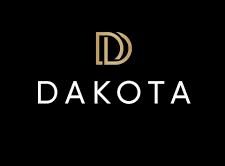



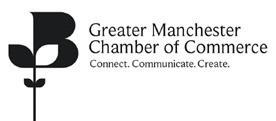




PATRON
HRH The Duchess of Edinburgh gcvo
VICE PRESIDENTS
A. Martin McMillan obe
Edward Pysden
BOARD
ELECTED DIRECTORS
Debbie Francis obe [chair]
Sharon Amesu
Alex Connock
Darren Drabble
Tim Edge
Juergen Maier cbe
Linda Merrick cbe
John Phillips cbe
Merryl Webster
Aileen Wiswell mbe
NOMINATED DIRECTORS
GREATER MANCHESTER COMBINED AUTHORITY
Eamonn Boylan
Councillor Janet Emsley
MANCHESTER CITY COUNCIL
Councillor Azra Ali
CHIEF EXECUTIVE
David Butcher
FINANCE DIRECTOR
Ruth Harkin
ORCHESTRAL NOMINEE
Tom Osborne
MUSIC DIRECTOR
Sir Mark Elder ch cbe
ASSOCIATE CONDUCTOR, POPS
Stephen Bell
ASSISTANT CONDUCTOR
Euan Shields
CHORAL DIRECTOR
Matthew Hamilton
YOUTH CHOIR DIRECTOR
Stuart Overington
YOUTH TRAINING CHOIR DIRECTOR
Matthew Roughley
CHILDREN’S CHOIR DIRECTOR
Shirley Court
COMPOSER EMERITUS
Colin Matthews
ARTIST-IN-RESIDENCE
Thomas Adès
CHIEF EXECUTIVE’S OFFICE
David Butcher *
Linzi Watts
FINANCE
Ruth Harkin *
Matthew Wyatt
Rebecca Draude
Curtis Dixon
VENUES
Martin Glynn *
Tyrone Holt
David Barker
Liam Burke
Karon Knapman
ARTISTIC PLANNING
Anna Hirst *
Louise Hamilton
Andrea Stafford
Sue Voysey †
Tamzin Aitken
CONCERTS
Jenny Nicholls *
Lucy Turner
Hannah McGuire
ORCHESTRA MANAGEMENT
Chris Lewis
Rosie Sutton
LIBRARY
Louise Brimicombe
Emily Crichton
STAGE MANAGEMENT
Dan Gobey
Lawrie Bebb
HALLÉ CONNECT
Naomi Benn * †
Jessica Harper
EDUCATION
Clare Webster
Holly Randhawa
Jodie Buckland
ENSEMBLES
Isabelle Orford
Alex Munro
Minnie Elliott
SPONSORSHIP AND FUNDRAISING
Kath Russell *
Eleanor Roberts †
Caragh Rooney
Louise Harvey
COMMUNICATIONS
Peter Naish †
Liz Barras
Anna Shinkfield
Harriet Hall †
DIGITAL
Alex Burns
David Hughes
ARCHIVE
Eleanor Roberts †
Heather Roberts
Charlie Booth
Harriet Hall †
Stuart Robinson †
† 20 years service
* HEAD OF DEPARTMENT
GENERAL ENQUIRIES
info@halle.co.uk
www.halle.co.uk
Hallé Concerts Society, The Bridgewater Hall, Manchester M1 5HA
Hallé St Peter’s, Blossom Street, Manchester M4 6BF
The Hallé Concerts Society is a Registered Charity No.223882 and a company limited by guarantee in England number 62753 Follow





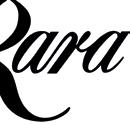
ARTISTIC DIRECTOR
Carlo Rizzi
HONORARY ARTISTIC PATRON
Renée Fleming
ARTIST AMBASSADORS
Ermonela Jaho
Michael Spyres
BOARD OF DIRECTORS
Charles Alexander cbe, chair
Philip Eisenbeiss
Glenn Hurstfield
Adolfo Laurenti
Bruce Mauleverer kc
Simon Mortimore kc
Alison Nicol
Islée Oliva Salinas
Terence Sinclair
Nicholas Thomas
Louis Watt
DEVELOPMENT COMMITTEE
Dori Dana-Haeri
Glenn Hurstfield
Islée Oliva Salinas
Terence Sinclair
John Tierney
AMERICAN FRIENDS COMMITTEE
Islée Oliva Salinas, Chair
Adolfo Laurenti, Vice-Chair
Allan Heinberg
Jennifer Marling
CHIEF EXECUTIVE
Henry Little
LABEL AND PRODUCTION DIRECTOR
Aurelie Baujean
FINANCE DIRECTOR
Irene Cook
DEVELOPMENT AND COMMUNICATIONS DIRECTOR
Zachary Vanderburg
DEVELOPMENT AND EVENTS COORDINATOR
Lara Bader
CONSULTANTS
Moë Faulkner, Press and Social Media
Milly March, Marketing
Jesús Iglesias Noriega, Casting
Roger Parker, Repertoire
Kirstin Peltonen, Development
OPERA RARA
Studio 11 Cloisters House
8 Battersea Park Road
London SW8 4BG
020 7613 2858 | info@opera-rara.com
WWW.OPERA-RARA.COM
Opera Rara is a registered charity, no 261403 | Company Limited by Guarantee, no 982535
Opera Rara’s projects are only made possible by the generosity of our supporters, who believe in our mission to restore, record, perform and promote the forgotten operatic heritage of the 19th and early 20th centuries. We would like to take this opportunity to thank those individuals and foundations who have made a gift to our Annual Fund*. Their continued support is vital.
GUARDIAN SOCIETY
Elena Baturina
Carlo Grosso
Stefan Olsson and John Tierney
CIRCLE MEMBERS
ARTISTIC DIRECTOR’S CIRCLE
Andrea Pessino○
Sir Simon and Lady Virginia Robertson
ARTIST’S CIRCLE
Philip Eisenbeiss
Carlo Rizzi and Lucy Stout*
PATRONS BENEFACTOR
Jon and Julia Aisbitt*
Edward Gasson
Allan Heinberg*○
Yvonne Horsfall Turner◊
Ditlev Rindom and Enrique Sacau
Peter Rosenthal
Terence and Sian Sinclair
Peter Thompson in honour of Carmen Giannattasio
Gerry Wakelin and Ivor Samuels*
DEVOTEE
Charles Alexander CBE
Timothy Congdon
Leslie and Peter Macleod-Miller◊
David and Janet McCue○
Islée Oliva Salinas and Michael Buckley
Imogen Rumbold
AFICIONADO
Sir David Bean
David Bernstein
Roger Bramble
Elizabeth Bunker
John Chichester
Sir Anthony Cleaver
Marco Compagnoni
Eleanor Cranmer and Nick Thomas
Dori Dana-Haeri
Jeff and Emily Fergus
Malcolm Herring
Alan Jackson
Adolfo Laurenti and Juliet Petrus
Michele Leuenberger
Bruce and Sara Mauleverer
Chris and Dominique Moore
Simon Mortimore KC
Sara Naudi and Prof. Mark Layton
Alison Nicol
Susan Pitts+
Martin and Patricia Spiro
Mark Walker
FRIENDS
ENTHUSIAST
Claus Ambos
Amanda Elder
Marian Gilbart Read
Patrick and Marian Griggs
Glenn Hurstfield
Sarah and Christopher Knight
Hal Lindberg
Henry Little and Prof. Maria M.
Delgado
Sir Timothy Lloyd
Jackie and John Rothenberg
Lord and Lady Sassoon
David and Unni Spiller
Lady Judith Swire
Zachary Vanderburg and Felipe Ramos
Barajas
CONNOISSEUR
Jane Flower
Eduard Herzog
Jonathan Jempson
Virginia Lawlor
Christopher Leslie
Margaret and Oscar Lewisohn
Jonathan and Fangmin Macdonald
David Macfarlane
Jennifer Marling○
Lady Carolyn Newbigging
John Nickson
James Power
Lady Jane Rayne
Deborah Roslund
Mark Shaw
Lucie and Christopher Sims
And our many Contributor and Member Friends
The Annual Fund list is comprised of donors who gave at the Connoisseur level or higher from September 2022 to April 2024
○American Friend
*Donizetti Syndicate
◊Gift in Kind
+Legacy Gift





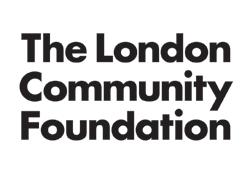
LIFETIME GUARDIANS
Opera Rara is particularly grateful to those individuals and organisations who have been exceedingly generous and have been guardians of our work since 1970.
Charles Alexander CBE
Foyle Foundation
Carlo Grosso
Michael Hartnall
Glenn Hurstfield
The Monument Trust
Sir Peter Moores and the Peter Moores Foundation
Stefan Olsson & John Tierney
Sir Simon and Lady Virginia Robertson
A full list of Opera Rara’s current Annual Fund supporters can be found at: www.opera-rara.com/list-of-supporters
